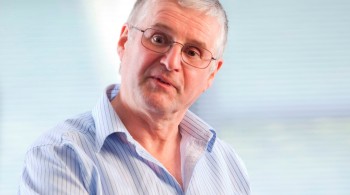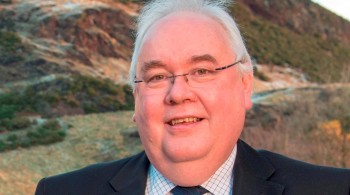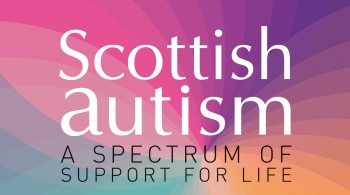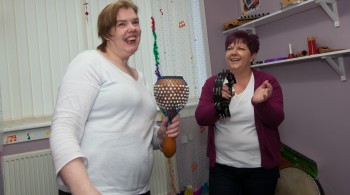About Us
Scottish Autism is dedicated to enriching the lives of people with autism.
Although we are primarily a service provider, sharing our knowledge and experience with parents and professionals is a key part of our approach to the delivery of high-quality services.
We do this through our Knowledge Share seminars across Scotland, our online support programme for parents and carers and a dedicated team of Autism Advisors who are on hand to provide emotional and practical support.
Our Centre for Practice Innovation provides an opportunity to bring together research and practice development initiatives and acts as a focal point for relationships with our peers and colleagues in the wider research world.
Our drive for continuous organisational improvement is underpinned by the adoption of the Public Service Improvement Framework (PSIF). Similarly, continuous improvement in our practice and service delivery is supported by the use of the Autism Practice Improvement Framework (APIF), a bespoke adaption of the theory and methodology used in PSIF.
We are the largest provider of autism-specific services in Scotland and a leading authority and advocate for good autism practice. Collaborating effectively with the Scottish Government, local authorities and other charities, we help to inform practice, strategy and policy on autism in Scotland.
Chairman's Report
We have chosen the theme Developing Practice, Enriching Lives for this review. Scottish Autism is committed to improving its offering and generating solid evidence of the efficacy of that offering for our service users.
Scottish Autism continues to strengthen its quality brand and passed a significant milestone when we achieved Quality Scotland’s Three Star Recognised for Excellence Award. The organisation has continued working within the Public Service Improvement Framework (PSIF) with a view to upgrading this award in 2017.
In addition we won the ‘Not for Profit Organisation of the Year’ award at the Clackmannanshire Business Awards and our Gartinny Nature Group won at the Autism Professional Awards.
Our participation in the community of autism at home and internationally continued apace. The following is a small selection from a packed schedule of events and achievements:
- A new series of Knowledge Share seminars began in Falkirk, Renfrewshire and the Borders.
- Scottish Autism presented at a three-day seminar in Cyprus, run by the Cyprus Autism Association, delivered a workshop at a BILD conference in Northern Ireland and closer to home chaired the National Autistic Society’s women and girls conference in Falkirk.
- Our collaboration with the Aarhus Kommune from Denmark continues and is proving to be a valuable experience for both parties.
Cathy Scott left the Board after long and distinguished service. We thank Cathy for her contribution to Scottish Autism’s development. However, we have continued to strengthen the Board and are delighted to welcome Dr Andrew McKechanie from the University of Edinburgh who is active in research into autism. We also welcome Mrs Peigi Macarthur who brings strong knowledge of education to the organisation.
The record this year shows substantial progress made towards our goals and I commend this annual review to all our stakeholders.
Chief Executive's Report
The pressure on our organisation caused by the ongoing freeze on local authority funding continues, now compounded by changes in employment legislation which have added significant extra costs at a time when we cannot increase our prices. However, we did achieve growth in our services, which allows us to continue our programme of development in knowledge management, research and quality improvement.
We have embarked on a significant programme of enterprise architecture which we call 'Fit for the Journey'. We expect that this will greatly improve our business systems, reducing the time staff must spend on administrative tasks such as rota planning and generate more management time for our real purpose which is providing autism services.
Our Centre for Practice Innovation provides a focus for practitioners, researchers and organisations to collaborate, share knowledge and shape innovative autism practice. The following is a small selection of the outputs:
- A project report was produced following a two year collaboration between RNIB, Edinburgh Napier University and ourselves. This report shows the benefits of educating autism practitioners in vision awareness.
- We joined the UK’s Good Autism Practice Journal’s management group as a co-opted member, sharing our experience as a service provider.
- Two of our staff wrote a new practice guide for social care practitioners titled, ‘Peaceful, Pain Free and Dignified: palliative and end of life care for people on the autism spectrum’, which is published by BILD.
As always there are far too many stories for me to comment on here and so, in conclusion, I would simply like to express my sincere thanks to all our staff for their hard work and dedication in continuing to move the organisation forward in the quality of the services it provides, supporting and enabling people living with autism in Scotland.
Our Approach
Scottish Autism contracts with 29 out of the 32 local authorities in Scotland, making us the largest provider of autism-specific services in Scotland. We take a very flexible approach recognising that each person with autism is unique and requires an individual support plan which takes into account their interests and motivations as well as addressing key challenges they may experience. Quality is at the heart of our services and we continue to receive positive feedback from our regulatory body, the Care Inspectorate.
Our grades compare favourably with generic care providers and we continue to achieve the highest overall mean grades in our care inspections in comparison to two other national autism-specific service providers, corroborating the success of our approach.
This last year has seen further widening of the gap with 71.2% of all of our care inspection grades at 5 or 6 compared with organisation 1 at 38.9% and organisation 2 at 0%.
Developing Practice
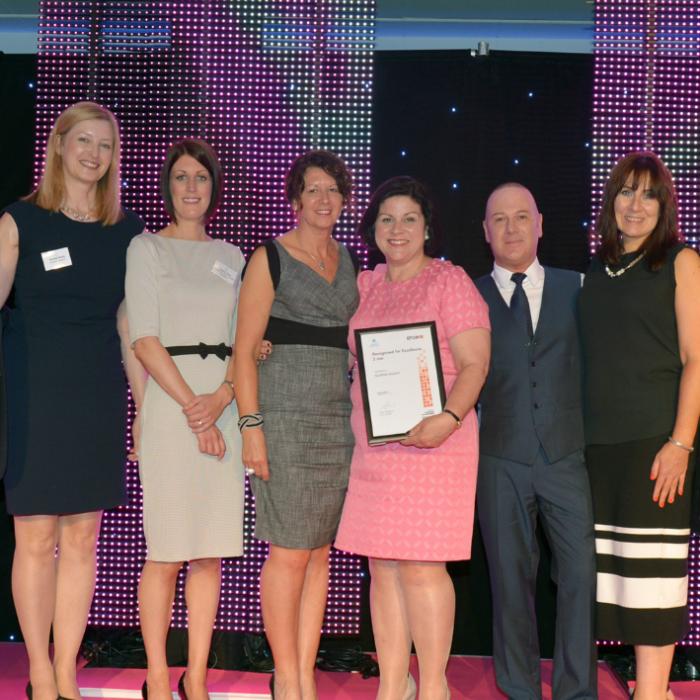
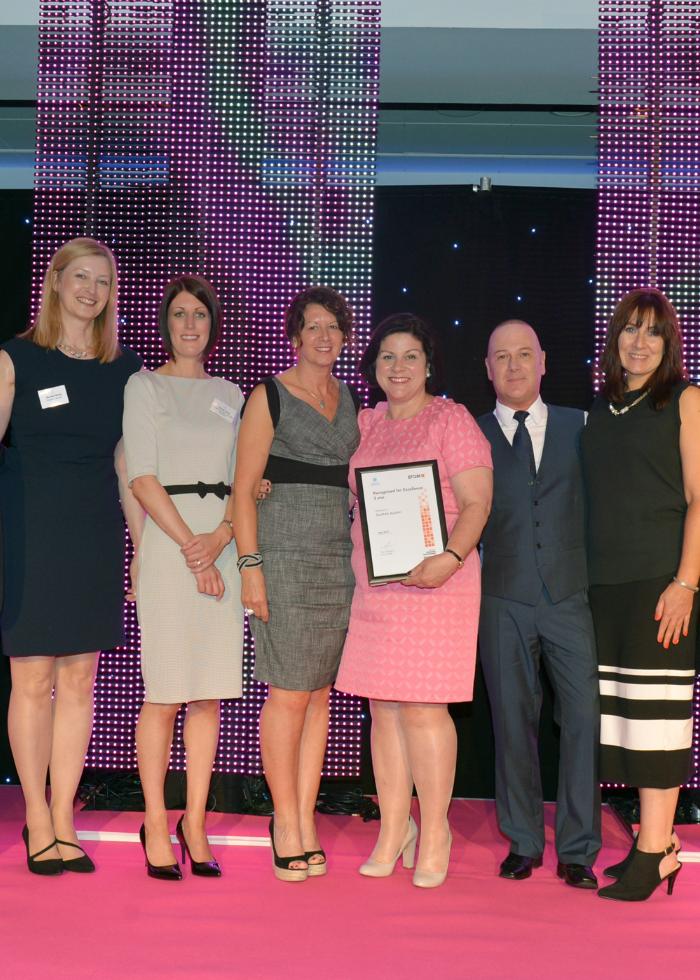
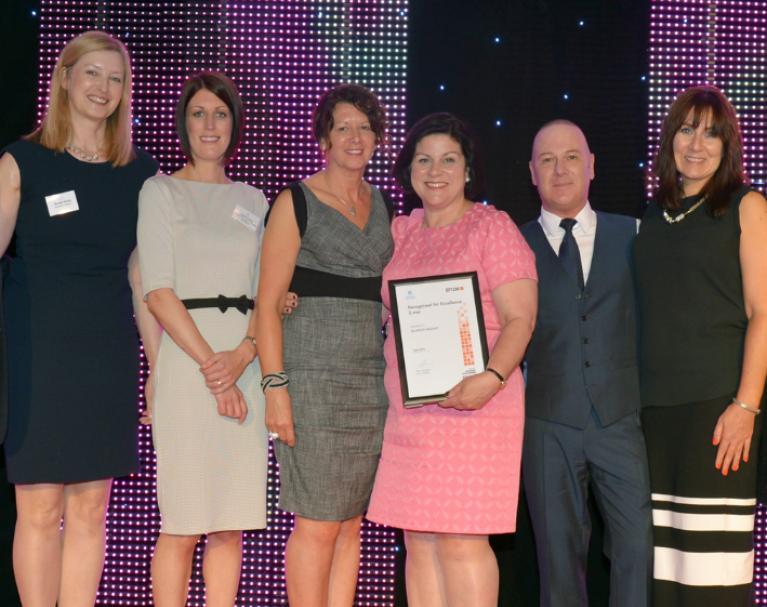
Public Service Improvement Framework (PSIF)
A drive for continuous improvement is embedded in our culture as we strive for excellence both as an employer and in the services we provide. To direct us in this, in 2010 we adopted the Public Service Improvement Framework (PSIF) a performance improvement model using a self-assessment approach which enables us to conduct a comprehensive review of our own activities and results.
At the start of our journey, we self-assessed our work across a broad range of key areas which enabled us to look at the whole organisation, identify our strengths and areas for improvement. Since then we have been continuously working through our areas for improvement. In 2013, we were delighted to receive the Committed to Excellence award which is the first level of excellence recognised by the European Foundation for Quality Management (EFQM).
At the start of March 2014, the PSIF team within our organisation began to work on the award at the next level, Recognised for Excellence. This award is validated by Quality Scotland who are the EFQM Scottish national partners. This prestigious award is designed largely for organisations that are well on their way to excellence. It is a recognition scheme acknowledged all over Europe for organisations that demonstrate high levels of performance. It benchmarks an organisations current performance against the best in Europe.
To apply for the award we were required to complete a submission document which detailed and captured all of our activities and key results and to do this effectively we engaged with many staff across the organisation.
A team of seven assessors from a variety of business backgrounds visited Scottish Autism for four days in April 2015 to scrutinise the submission document. This included three days of site visits to our services where the assessment team met with our practitioners. The assessors spoke with almost 100 people including Board members, the Senior Management Team, Regional Managers, Service Managers, Senior Autism Practitioners and three staff focus groups. We were delighted, when in June 2015, we were awarded the 3 star Recognised for Excellence Award.
Scottish Autism received extensive feedback from the assessment team and a detailed report which outlined our key strengths and where we need to improve. These improvements are now being driven forward through a variety of initiatives and in January 2016 we started the application for Recognised for Excellence Award again, striving for an increase in stars at this level.
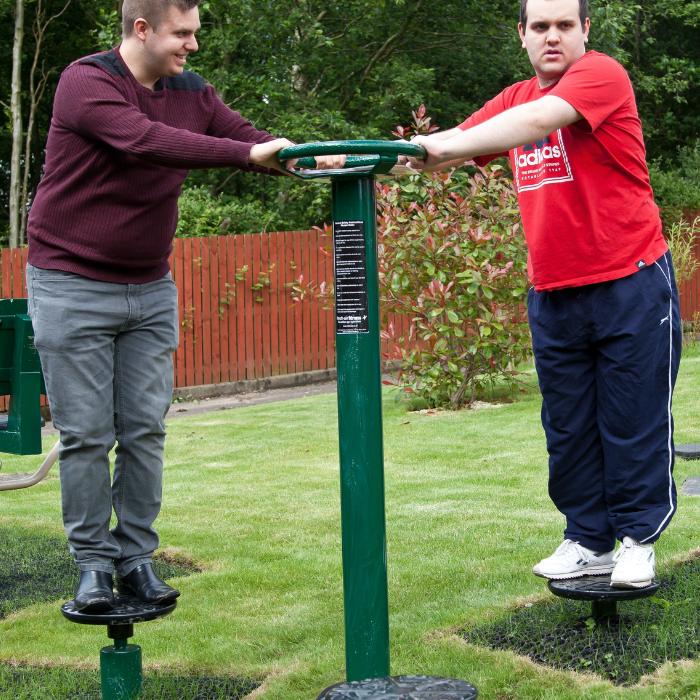
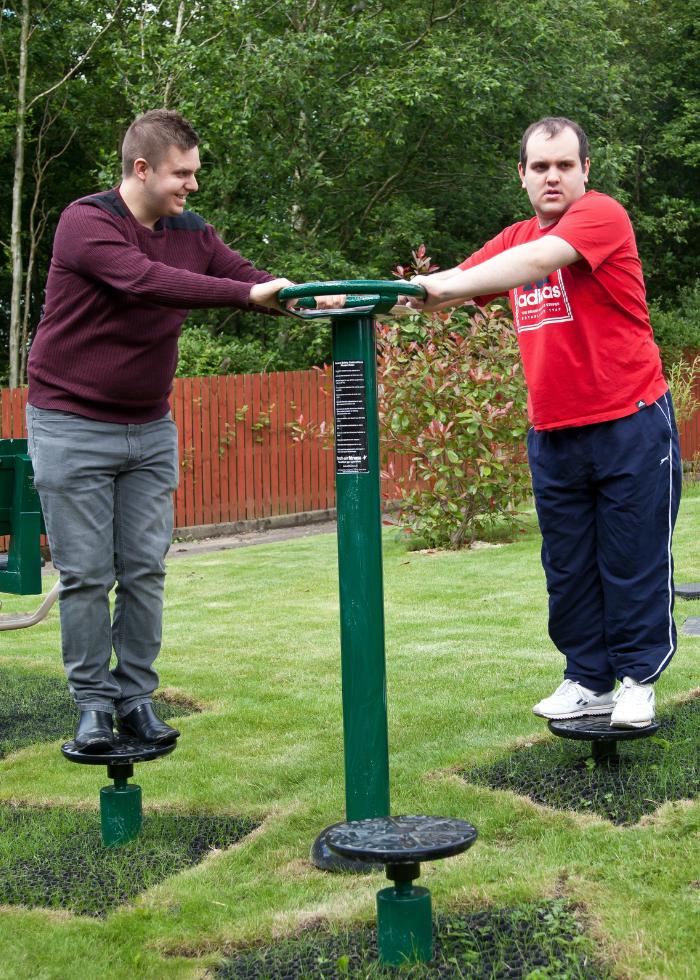
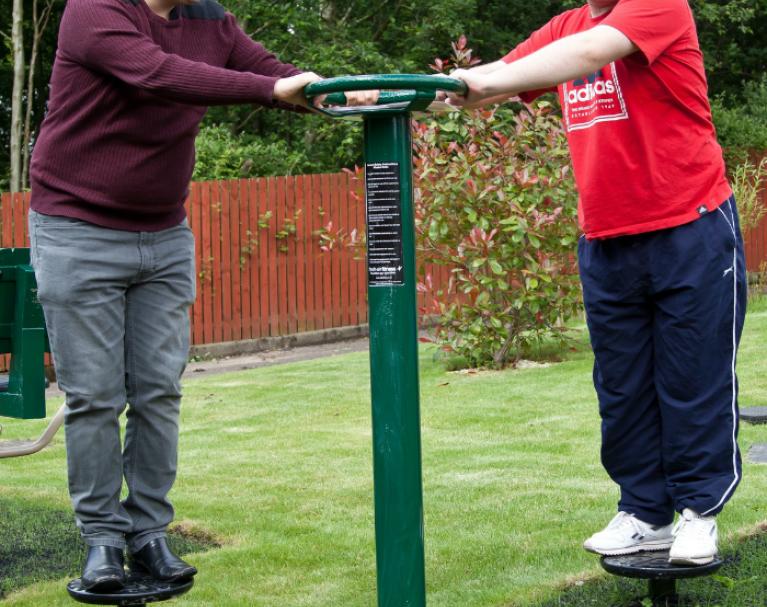
Autism Practice Improvement Framework (APIF)
The Autism Practice Improvement Framework (APIF) was designed as a bespoke adaptation of the theory and methodology used in PSIF, with specific focus on continuous improvement of our practice and service delivery. APIF is underpinned by Scottish Autism’s ethical framework for practice, strengthening the organisation’s vision and values. There are seven themes encompassing statements which services and individual practitioners can use for self-assessment.
Following the successful pilot of APIF in Fife and Tayside and New Ridgepark in 2014, an Autism Practice Improvement Advisor was employed in October 2015 to support and expedite the roll out of APIF across Scottish Autism. During 2015, nine APIF teams were established, representing each service region and department directly involved in autism practice. Teams are comprised of Senior Autism Practitioners, Autism Practitioners, Support Workers, Autism Advisors and Learning and Development Partners.
By March 2016 all teams completed their APIF self-assessment, determined their key strengths and identified their top three areas for improvement. Currently teams are developing and implementing action plans for their top three improvement areas.
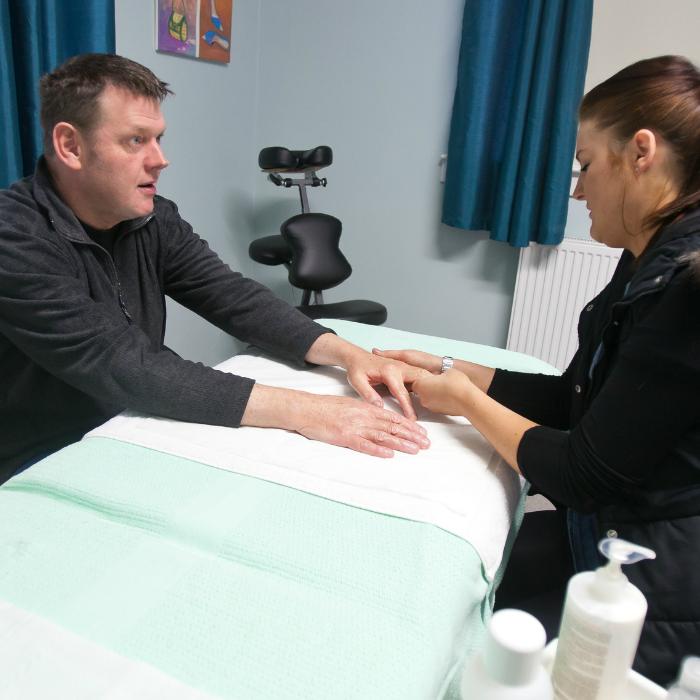
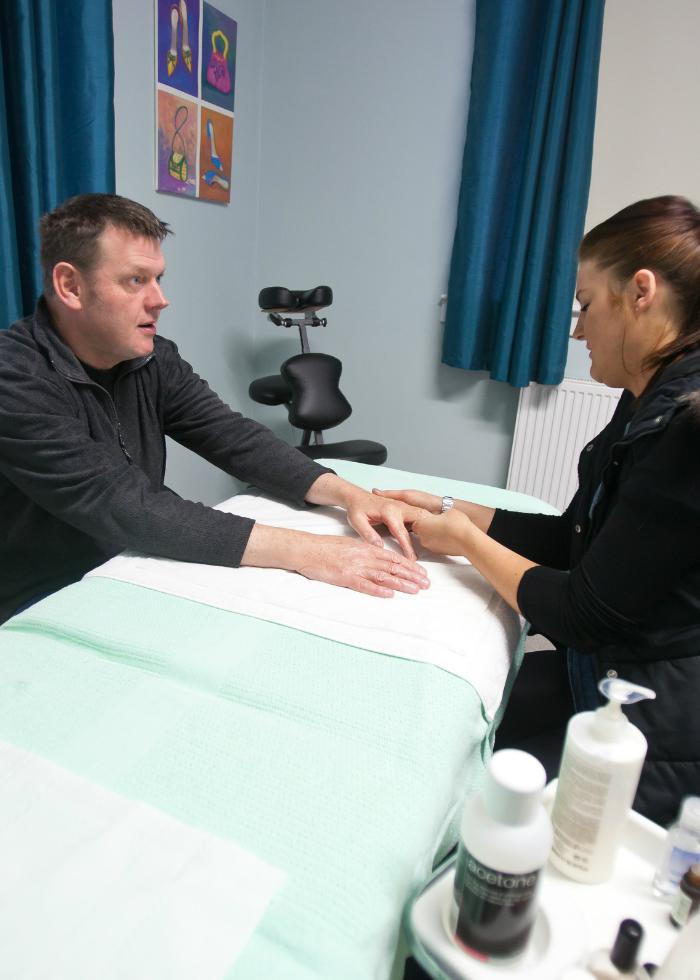
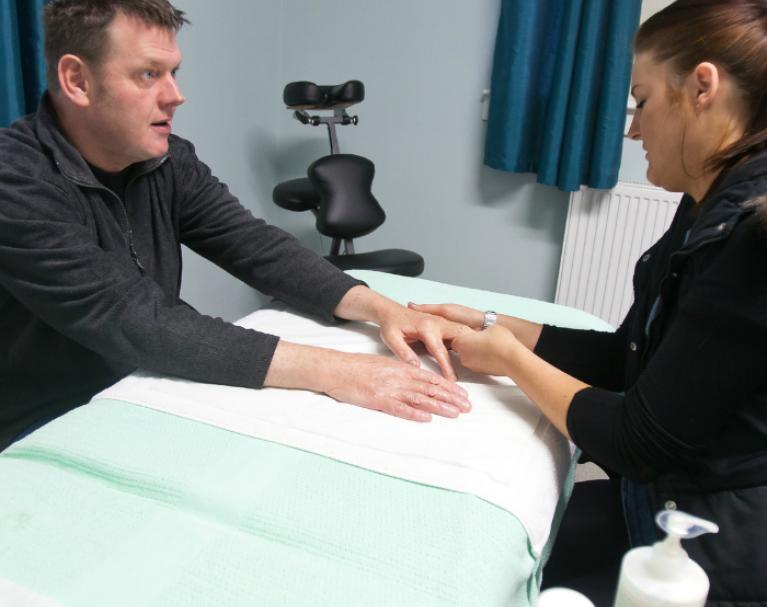
Our Wellbeing Model of Practice
We continue to work to embed a positive model of practice that focuses on wellbeing, happiness and a good quality of life for the individuals we support.
Central to this is our continuing engagement with the ATLASS programme (Autism Training with Low Arousal Support Services) developed by an organisation called Studio III. A second group of staff have completed Master Class level training and we are now looking at ways we can disseminate and embed our learning across the organisation. We have benefited from ongoing collaboration with colleagues from Aarhaus in Denmark who also use this approach. Our staff are supported by mentors who are more experienced in applying the principles of ATLASS.
Stress reduction planning sits well with our practice ethos that works to deliver a personalised, individualised approach.
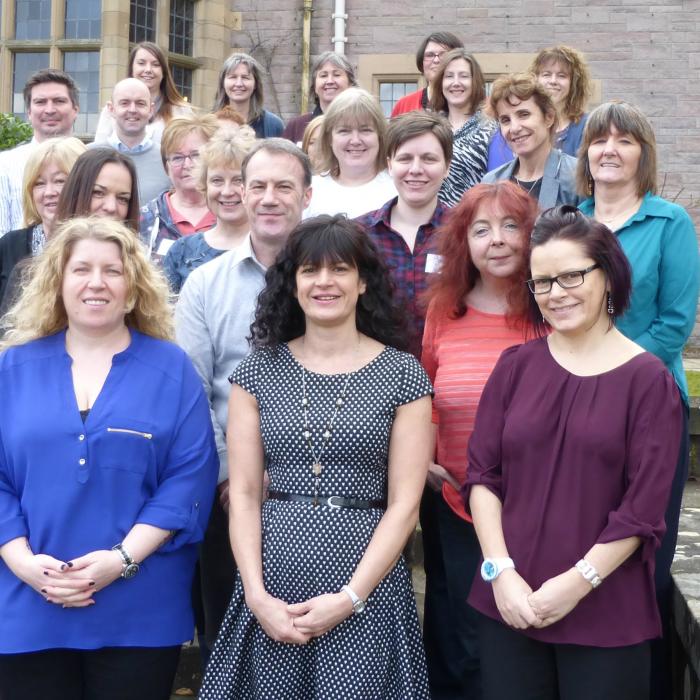
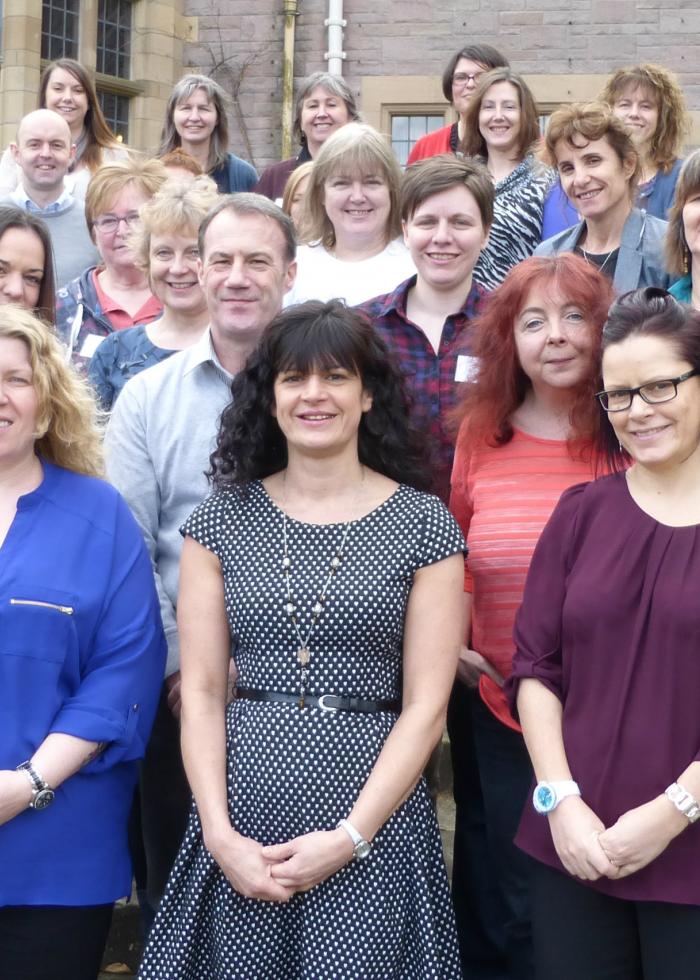
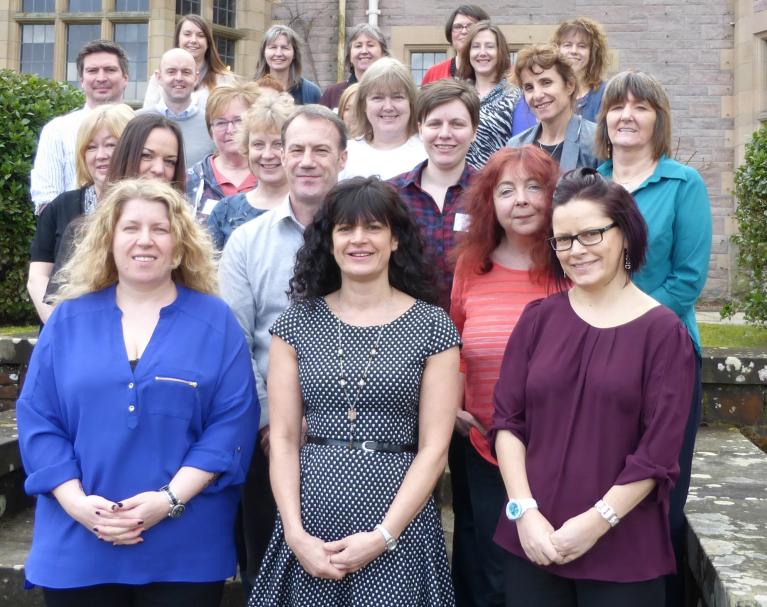
Autism Trainer Award
Since the pilot of our SQA customised Autism Trainer Award in March 2015, eight candidates have successfully completed the award and have received certification from the SQA. The award comprises of two units. Unit One is a theory based unit that introduces candidates to a range of concepts that underpin adult learning and good training practice. A common theme emerging from feedback from the candidate group is that the understanding and consideration of adult learning theories has had a positive impact on their approach to the development of autism training. Unit two is practice based and focuses on the preparation and delivery of autism training and in essence, consolidates the learning experiences from unit one. Candidate feedback on this unit indicates that formulating meaningful learning outcomes, the development of different styles of evaluation and how these influence future training is improving their training practice. We have a number of candidates who are part way through the programme and aim to support completion of the initial pilot by the end of 2016.
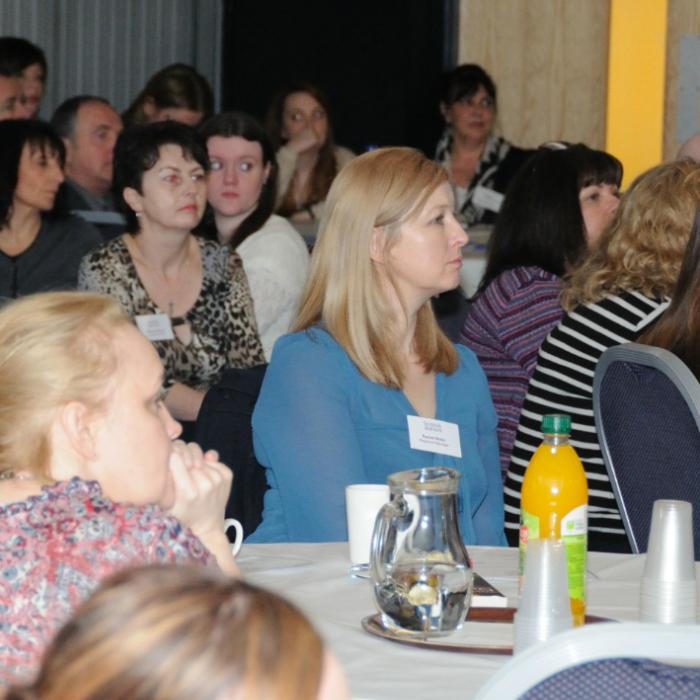
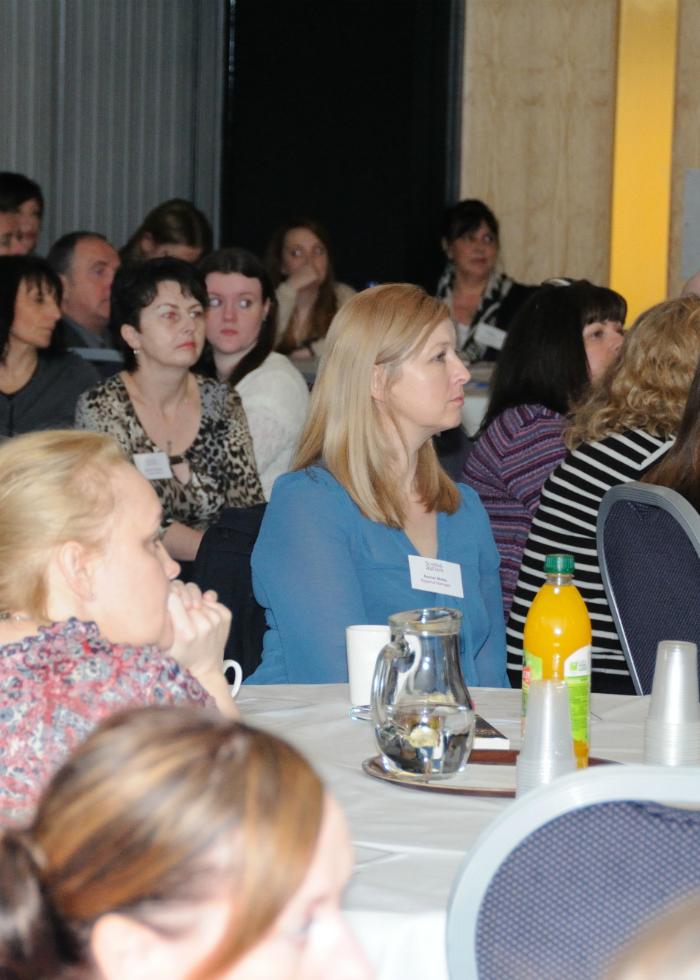
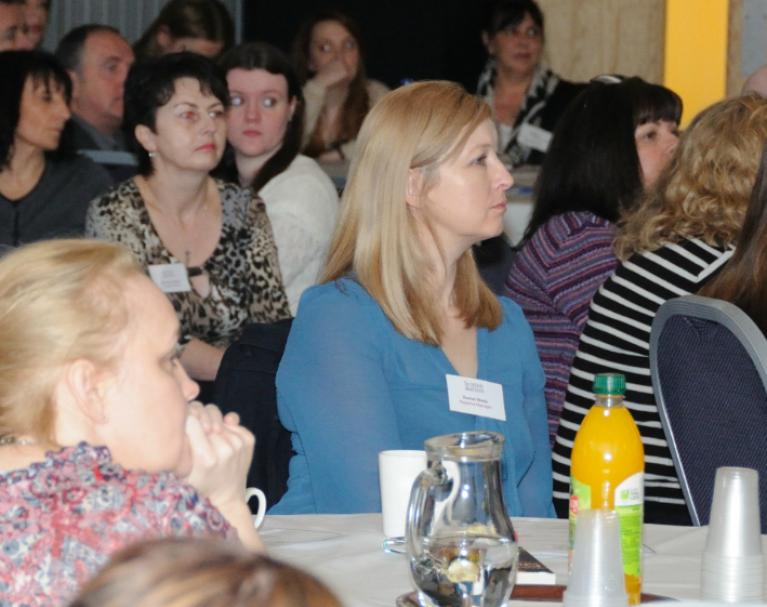
Staff Learning and Development
Sa iLearn
In October 2015 we launched our internal staff e-learning resource, Sa iLearn. The aim of Sa iLearn is to give our practitioners access to resources that will enable them to revise and revisit material to support them in their role. With our practitioners spread out across Scotland, having an online platform enables staff to access content as and when they require. It has also allowed us to extend learning opportunities for more experienced staff with in depth videos on certain topics. Over two thirds of our practitioners have accessed Sa ilLearn and it has encouraged a continuous learning culture by providing resources that can be accessed to support discussion at team meetings or development days.
Staff Conference
Our annual staff conference provided a rich source of learning and development with staff delivering workshops on topics such as lego therapy, autism profiling and stress management. This year we were delighted to welcome John Williams who performed his moving comedy show, ‘My Son’s Not Rainman’. We also welcomed Peter Vermeulen who presented on the consequences of context blindness on communication and about the importance of concrete communication for individuals with autism.
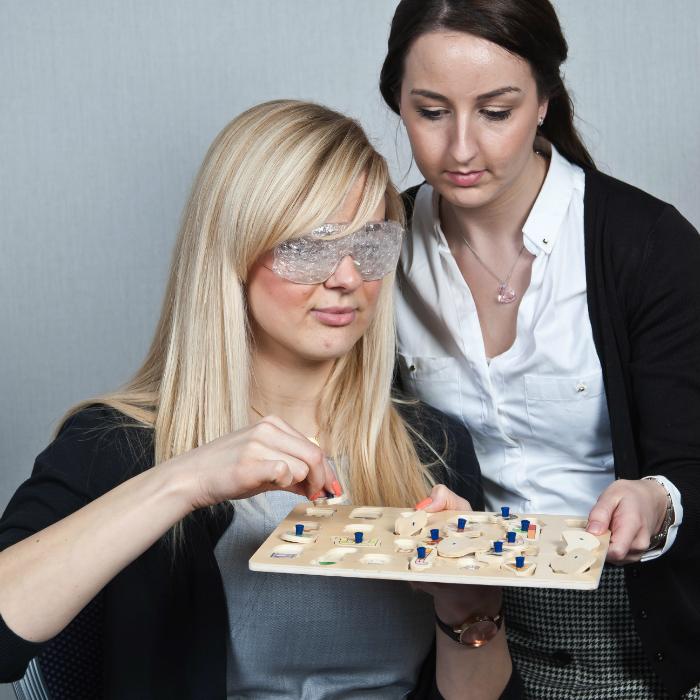
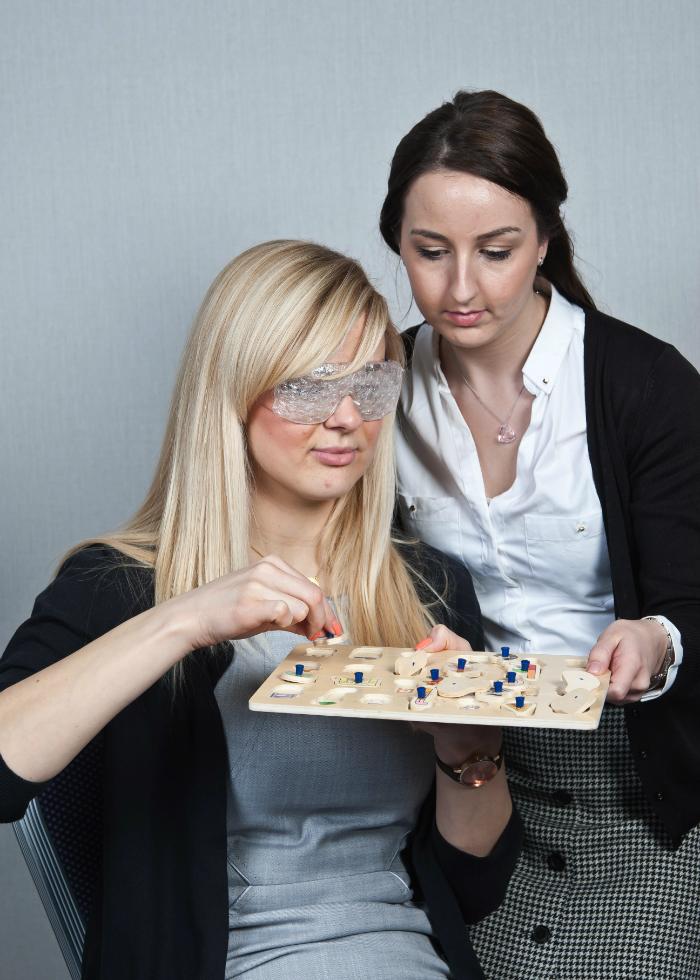
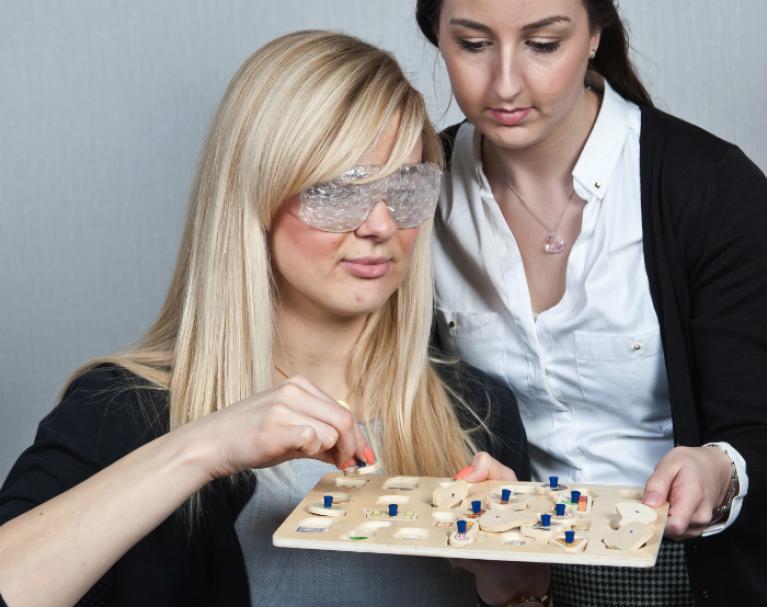
Research
The last year has seen a number of Scottish Autism’s research initiatives bear fruit and exciting new projects and collaborations have also begun. In November we welcomed Alastair Clarkson as our new Researcher in Residence. Alastair is a highly experienced practitioner who has spent many years working in our West of Scotland services and is currently a PhD candidate at the University of Aberdeen.
The final report from the Autism and Sight Loss project undertaken with RNIB and Edinburgh Napier University demonstrated clearly the value of vision awareness training for improving practitioners’ knowledge and confidence in identifying and supporting individuals with sight loss. A workshop on the theme of Pathways to Eye Care engaged colleagues from optometry services, the Scottish government and the community in discussing and making recommendations for improved vision support for individuals with autism. Two papers from the project have been accepted to peer-reviewed academic journals.
Internally, the research team has been working with colleagues to develop methodologies for engaging people that we support in an organisation-wide survey of individuals’ experiences of our services. The survey aims to include a cross section of those that we support.
In a similar vein the practitioner research team that worked on improving individual voice and participation in services has been trialling the use of mobile technologies for individuals we support to make their own updates to support plans and case management files through an internal organisational project which is evaluating and reviewing all our business processes. Both projects stem from our commitment to promoting user involvement as laid down in the Charter for Involvement.
At the beginning of 2016, Scottish Autism received funding from the Scottish Government for a collaborative project with North Lanarkshire education service on reducing school avoidance among young people with autism. The project will seek to understand how improved autism profiling might help understand a young person’s needs and reasons for avoiding school. The research team will be involved in evaluating the project and establishing how successful outcomes might be replicated in the future.
Our various projects will be among nine work streams from Scottish Autism to be presented at 2016 Autism Europe Conference in Edinburgh. We also continue to publish our work in the Centre for Practice Innovation’s Share magazine, along with readable accounts of research undertaken by our colleagues in the wider research community.
Scottish Autism continues to play an active role in developing a practice-focused agenda for autism research. Research Manager Joseph Long represents the organisation on the cross-institutional Scottish Autism Research Group committee, we are now partners in the Good Autism Practice journal, and we have attended a number of UK-wide events and conferences. Dr Long presented on our research programme at the Shaping the Future of Autism Research seminars funded by the Economic and Social Research Council in July 2015.
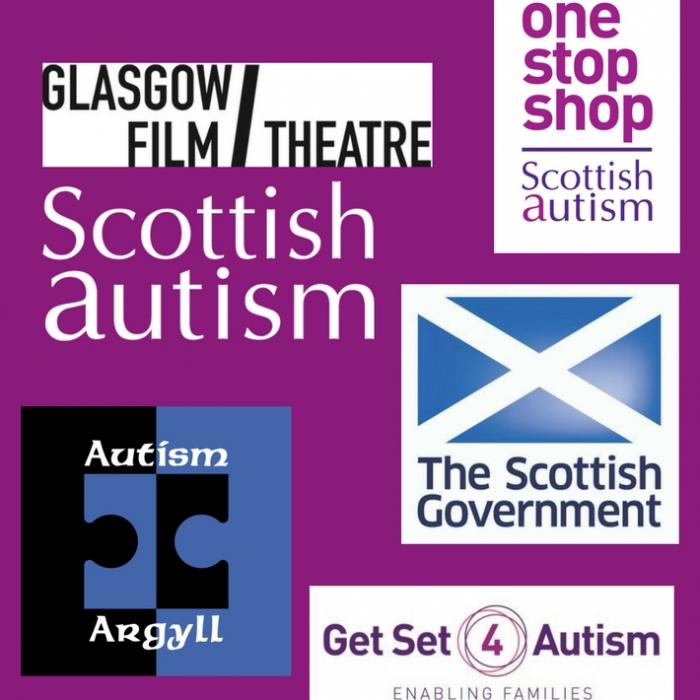
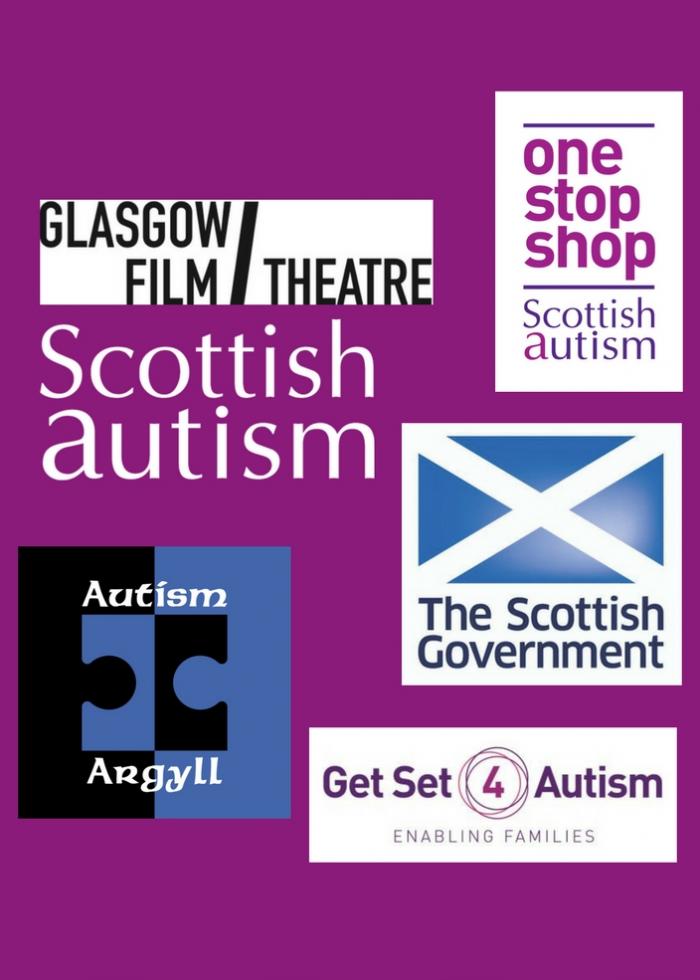
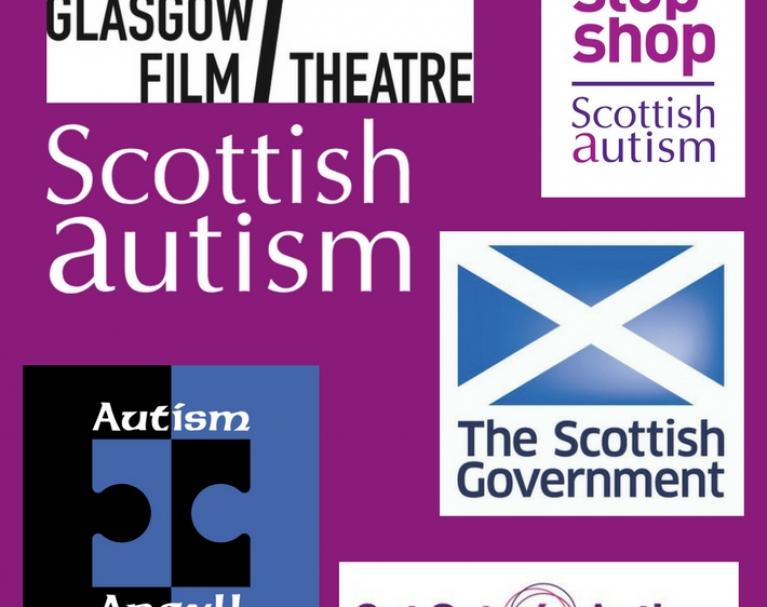
Partnerships
Glasgow Film Theatre partnership work
In partnership with Glasgow Film Theatre, we launched Access Film Club in November 2014. The monthly film club was developed to provide a welcoming and accessible environment for individuals with autism. The club has continued to evolve with monthly screenings attracting on average around 35 audience members. For some screenings, we have held post film discussions with relevant guest speakers such as Scottish actress Kate Dickie at the screening of the film she starred in, The Witch.
Get Set 4 Autism
In partnership with Autism Argyll and funded by The Big Lottery, our five year Get Set 4 Autism project launched in April 2015. The project aims to provide post-diagnostic support to parents and carers of children and young people up to the age of 18 years old who have autism across Argyll and Bute. The project will promote a greater understanding of autism, improve communication between parents and professionals and ultimately equip parents with the information and practical skills they need to enable them to better support their child.
Families who are referred to the programme have access to a network of support including our online support programme, Right Click, as well as further resources from Autism Argyll and other local bodies.
One Stop Shop
Our One Stop Shops in Fife and Lanarkshire were funded by the Scottish Government as part of the Scottish Strategy for Autism for a two year period. The funding for them came to an end in March 2016. Although the Fife One Stop Shop remains open and is now funded by Fife's Health and Social Care Partnership, our Lanarkshire One Stop Shop has now closed.
Our One Stop Shop in Fife has continued to provide much needed information and advice on autism within their local communities and was accessed over 2600 times.
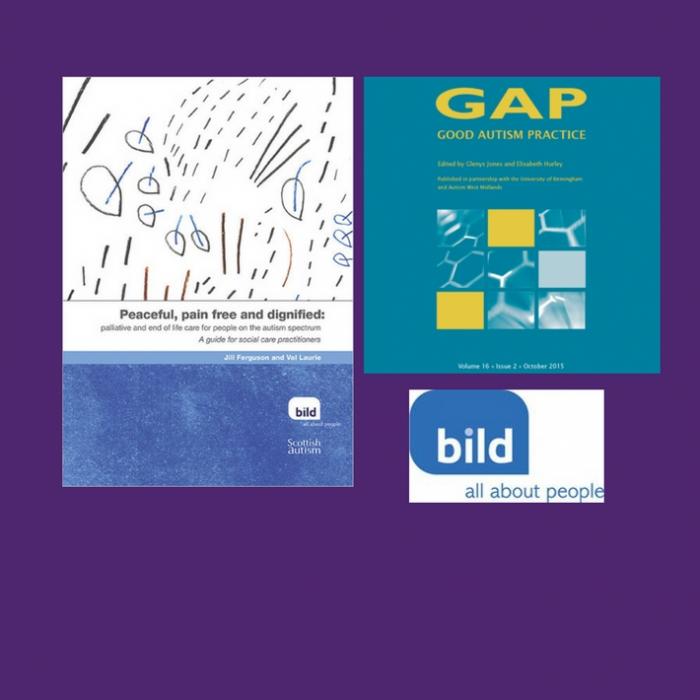
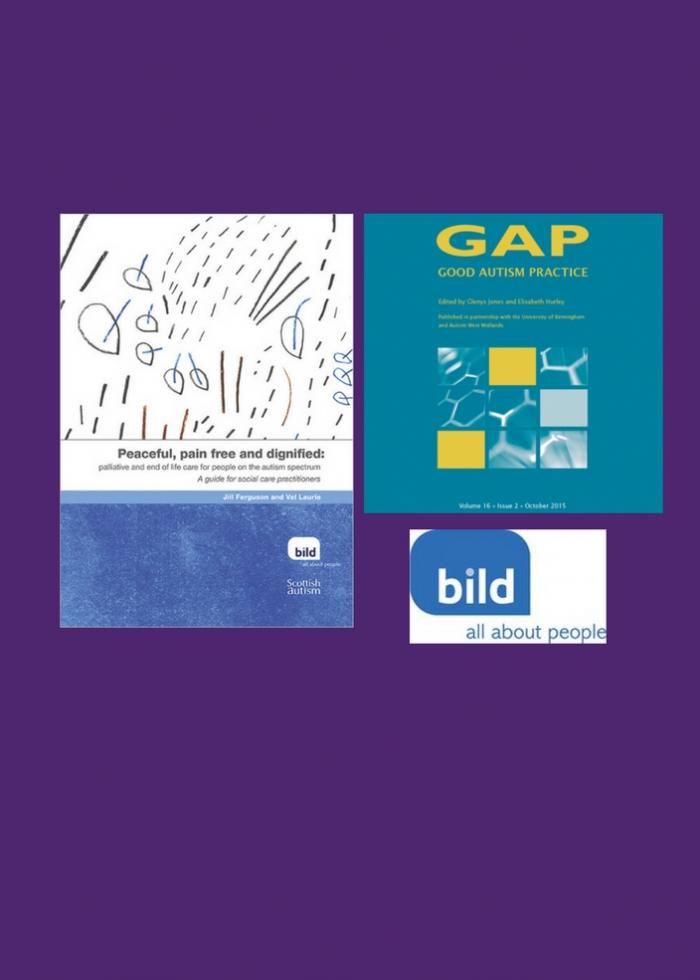
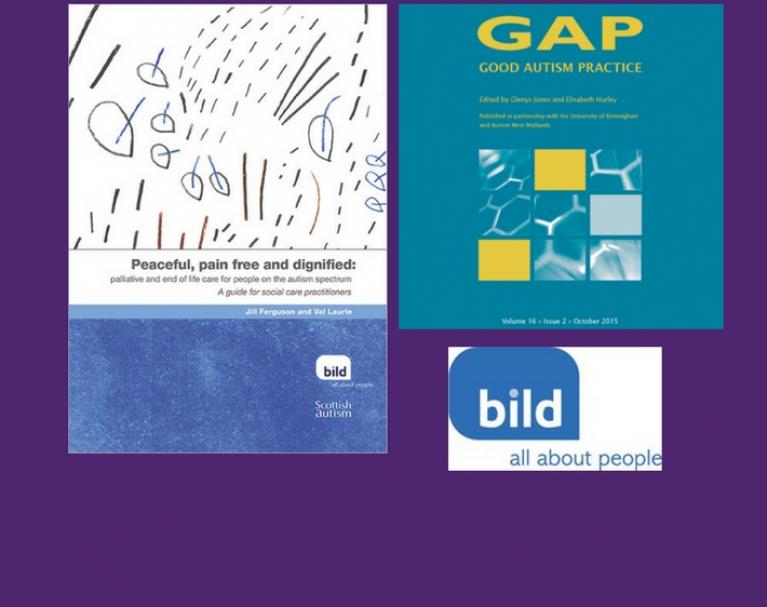
Together with BILD
A practice guide, titled Peaceful, Pain Free and Dignified: palliative and end of life care for people on the autism spectrum was written by two of our practitioners Jill Ferguson (Service Manager) and Val Laurie (Senior Autism Practitioner) and published by the British Institute of Learning Disabilities (BILD) in autumn last year. The guide is designed to inform others who provide care and support for individuals with autism in the final stages of their lives.
The book charts the poignant story of an individual with autism who was diagnosed with terminal cancer. Over the final three years of his life, he was supported by his friends, family, medical staff, as well as his Scottish Autism support team. This narrative of Peaceful, Pain Free and Dignified sensitively conveys how his physical, psychological, social and spiritual needs were met, taking into account the impact of his autism on his understanding and response to his cancer.
We further developed our partnership with BILD when we joined the Good Autism Practice Journal’s management group as a co-opted member. The GAP journal is dedicated to promoting good practice for supporting children and adults living with autism. Initially launched in 2000, the GAP Journal is published bi-annually in May and October. The publication is edited by highly respected academics and practitioners specialising in autism and aimed at a wide audience. We will share our experiences as an autism service provider in order to encourage and promote the journal’s mission to publish work that reflects on, and informs good autism practice.
Sharing
Between April 2015 and March 2016 we shared knowledge and experience via…
Knowledge share
We delivered our Knowledge Share seminars in three locations: Paisley, Falkirk and Borders, reaching over 300 parents and professionals across these nine events.
External speakers
Peter Vermeulen, Co-Director of Autisme Centraal in Belgium, delivered an inspiring full-day seminar on Autism and Communication to over 70 parents and professionals.
Right Click
In June 2015 we launched our online support programme for parents of adults with autism. Across the three programmes, 407 parents and carers accessed our online support programmes.
Online platforms
On Facebook we had 5301 new likes.
On Twitter we attracted 1108 new followers.
There were 199,726 visits to our website.
714 people signed-up to receive our monthly e-news.
Our Autism Support Team
- Carried out 33 assessments through the diagnostic service.
- Continued to provide partnership support to our autism services including: workshops, training, mentoring in TTAP assessments and ATLASS stress reduction, autism profiling, support to parents and sleep counselling.
- Delivered 15 Introduction to Autism training courses to around 250 delegates.
Raising Awareness
Online Digital Brand Campaign
Based on the theme ‘Scottish Autism puts the IS in autism,’ for the first time we launched a four week digital campaign in October 2015. The campaign consisted of a series of positive messaging highlighting that whilst autism can result in a range of challenges, people on the autism spectrum have potential, skills, talents and aspirations, and that it is possible to achieve the outcomes that are meaningful to them and their families. An accompanying message of the campaign focused on how we provide a ‘spectrum of support for life’ to enable individuals with autism and their families to receive the support they require throughout the whole life journey with adverts directing to our Right Click and Advice Line pages on our website.
Delivered via a series of video adverts that appeared across Facebook and parent networking website Mumsnet, the campaign was also further reinforced with a dedicated campaign website page. The campaign aimed to raise awareness of our organisation and the support we offer to families and professionals and we were delighted with the results: over 2000 people visited our dedicate campaign page and there was an almost 300% increase in page views for both our Right Click programme and our Advice Line page.
In the Media
The year has presented us with media opportunities to increase public awareness and understanding of autism and of the support we can offer families:
- Charlene Tait, Director of Autism Practice and Research, featured on STV Glasgow News with one of the individuals we support, Kenneth, who accesses our New Ridgepark Transitional Assessment Service. Kenneth's dad, Sandy, was also interviewed for the programme giving an insight into one family's experience of autism.
- On Autism Awareness Day our brand colour of purple lit up the Falkirk Wheel, whilst during the month of April our logo was displayed prominently on the M8 motorway pyramids. We estimated that our display was seen by over 70,000 people each day.
- We took up another opportunity to raise awareness of autism on BBC Radio Scotland when Charlene Tait, discussed some topical issues around autism.
- Wining the Clackmannanshire Business Award in the ‘Not for Profit’ category was great recognition of the hard word our staff and individuals with autism do in the Forth Valley area.
Enriching Lives
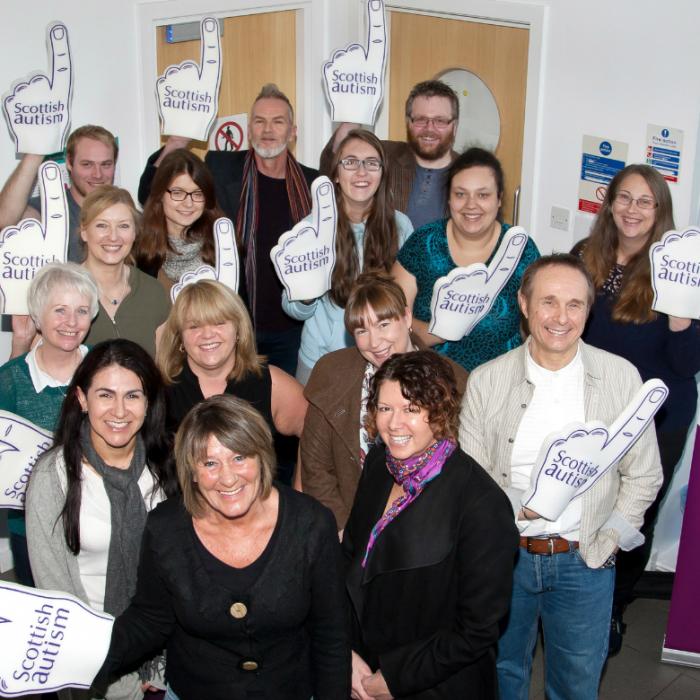
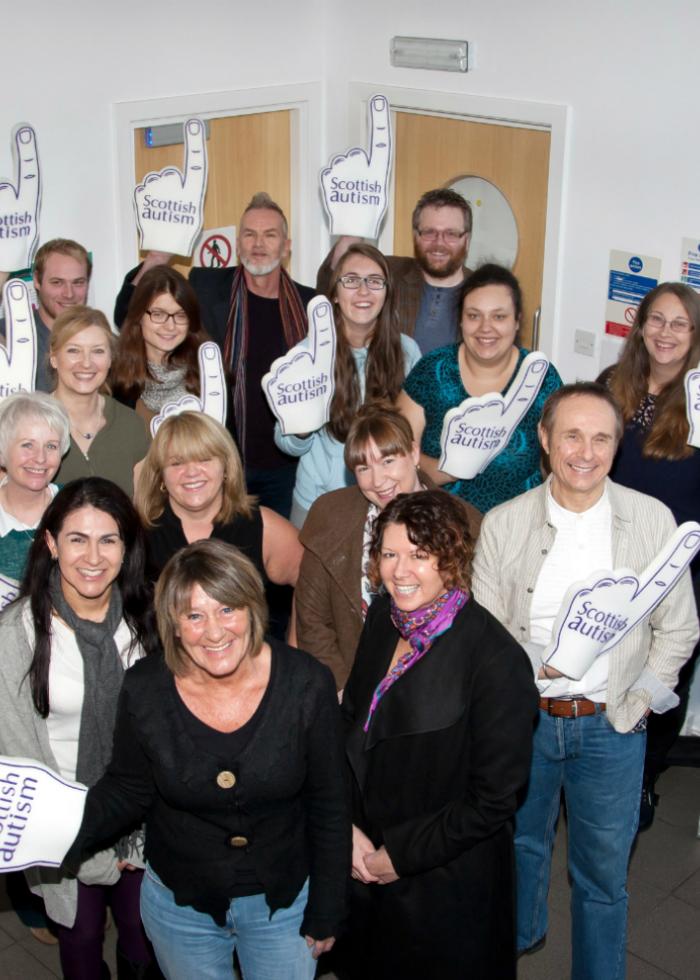
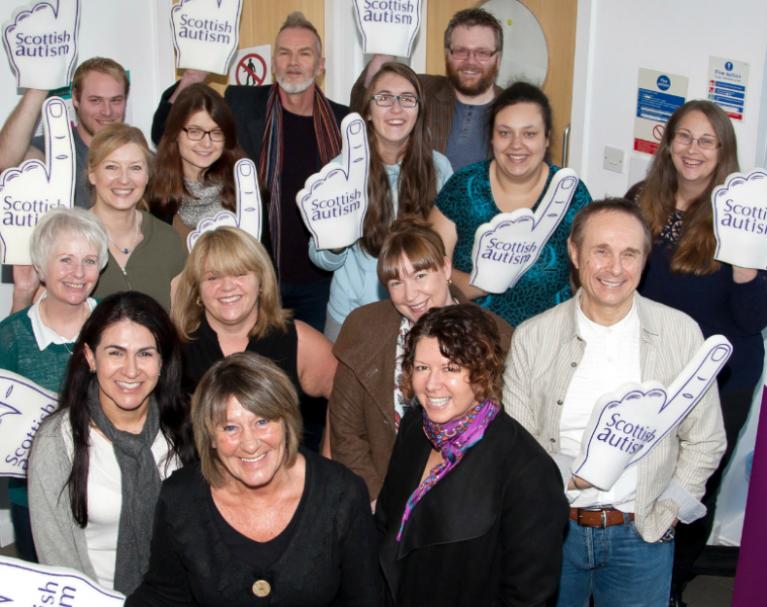
Day
Our day opportunities offer diverse experiences for individuals with autism. Individuals are supported by practitioners who take the time to understand their needs and focus on enabling them to enjoy their new experiences.
Fife's 20th Anniversary
In November 2015 we celebrated Fife service’s 20 year anniversary by holding an event in Blue Central, Dunfermline, which showed our journey through the years. The day was a great success and lots of the individuals we support and their family and friends came along to celebrate with us. There were some fantastic displays of photos, video clips and memories from the last 20 years.
Scottish Autism opened services in Fife in 1995 when Jim Gorman, now Service Manager, established services for nine individuals in two small residential settings in Lochgelly as well as a day service in Cowdenbeath. Eight of the individuals remain supported by us today. At the time, our Fife service was pioneering, becoming the first autism-specific provision in the area. Since then the service has grown and we now offer a range of services across the county.
The individuals we support in Blue Central are very creative and their work was showcased at the event. In addition to this, there were photographs of the different services in Fife documenting how they have changed and photos capturing some of the fun holidays taken throughout the years. The award winning production of ‘The Tree and The Abbey’ was also screened in one of the rooms: a production the service put together and performed at the Edinburgh Festival Fringe in 2013.
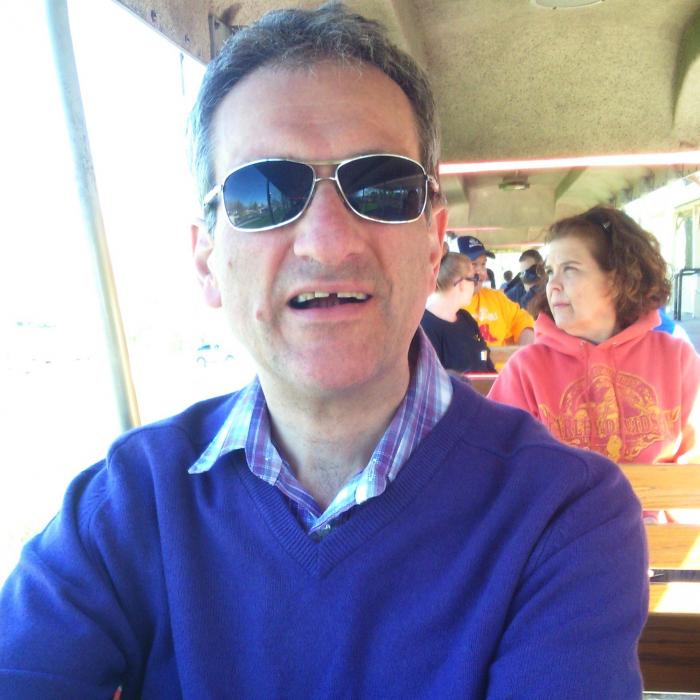
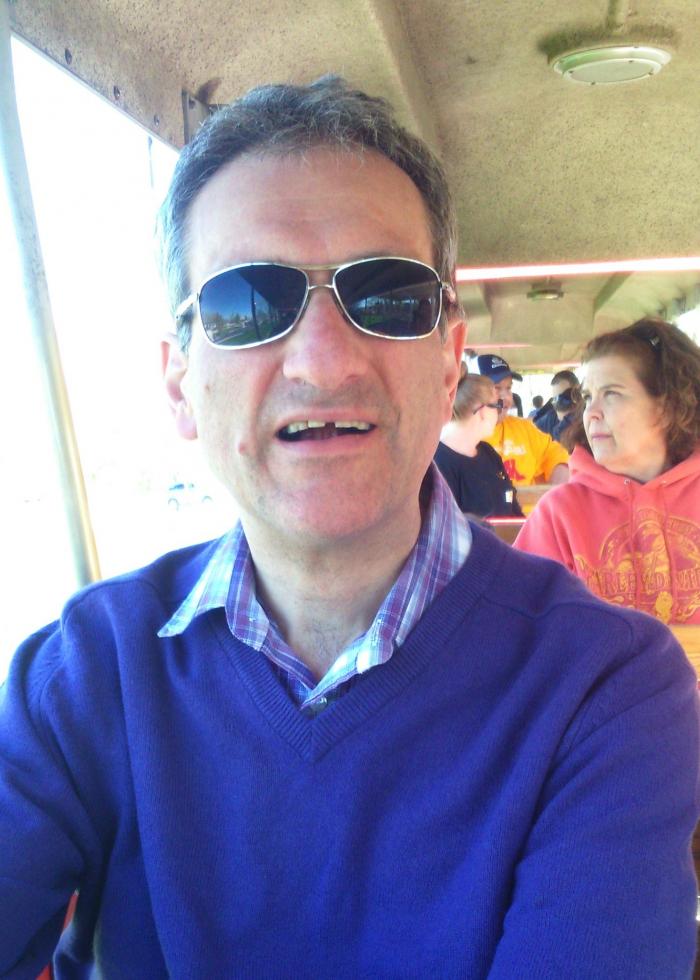
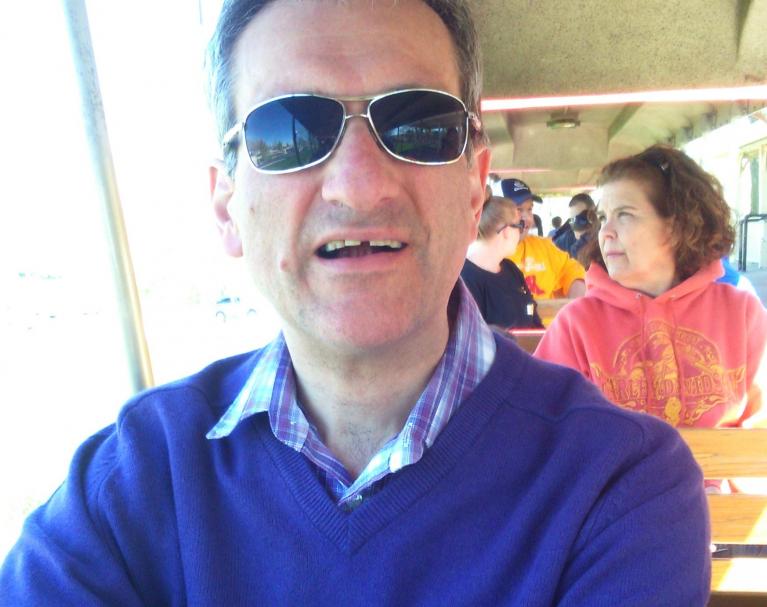
Vocational
Our vocational opportunities offer unique and personalised services which are based on the choices, needs and aspirations of each individual. We offer meaningful training opportunities and the chance to develop work skills in a safe environment. Learning valuable practical skills within this setting can enhance an individual’s self-esteem as they can see firsthand the value in the work they carry out.
Overseas Adventures
In April 2015, Christopher Marley and a Senior Autism Practitioner from Art Opportunities, were invited to present at the Autism and Arts Education Symposium at The University of Northern Iowa. The symposium brings together researchers, practitioners, teachers, therapists, and parents who specialise in arts education for children with autism with the purpose of sharing ideas and learning more about the benefits of the arts for people with autism.
Together they presented ‘Autism and Art – A Lifelong Journey’, which considered the role and importance art can play in the happiness and wellbeing of adults with autism. Often opportunities for art and creativity end when a person with autism leaves education. Our Art Opportunities service views art as a lifelong vocation and many of the individuals we support there, see their art as their job. Christopher has been supported by Scottish Autism for over 22 years and accesses Art Opportunities four days a week where he specialises in a range of techniques, including glasswork.
Being invited to present at the symposium was a fantastic opportunity for Scottish Autism, but even more so for Christopher who was able to share his creativity and passion for art in his presentation whilst learning from other professionals. Before heading back to Scotland, they took a few days to explore Iowa and have a well-deserved break. When asked about the symposium Christopher said: “The symposium was really good and very easy to follow, not written as a conference or like a party broadcast. It was easy to follow because it was written from a service users point of view, basic and no Latin or translations, which I liked. I loved how it was all interactive as well and how you could play with all the new toys and equipment.”
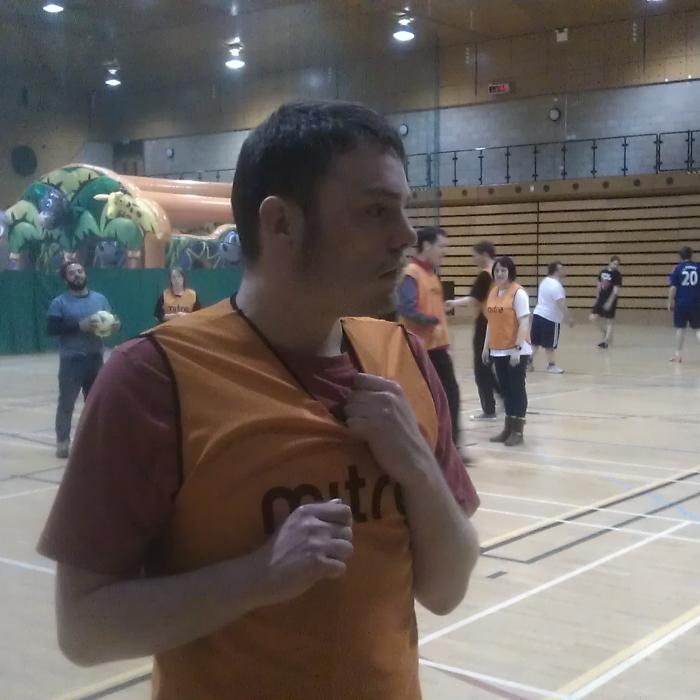
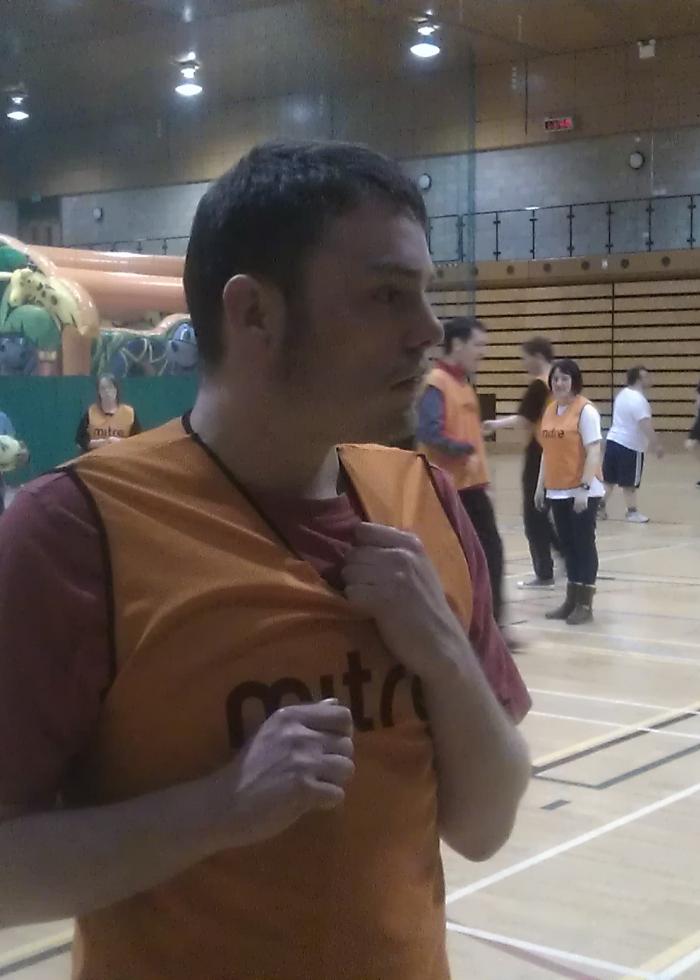
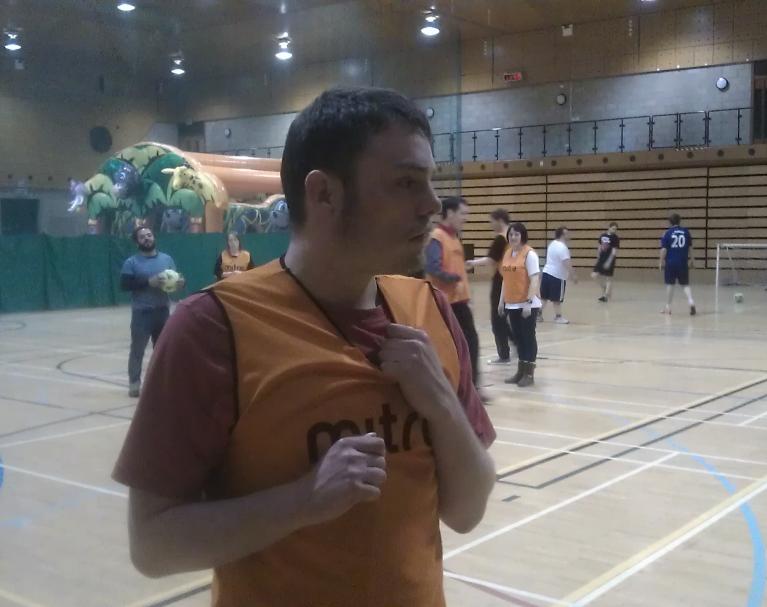
Supported Living
Across all of our supported living services, the emphasis is on the development of skills for independent living, recognising individual goals and aspirations and enabling people to be active participants in their local communities and beyond.
Jamie’s Team
Jamie accesses our supported living service in Orkney. One of the first things we learned about Jamie was that he loves football – his signed David Beckham picture takes pride of place in his room. We could see that whenever any of the groups Jamie belonged to played football as their chosen activity for the session he would light up. In an attempt to develop this interest, Jamie’s support team bought balls and started taking Jamie to the local park and the beach. However, Jamie would often make the sign for football then point to photos of groups - he needed a team.
After several unsuccessful attempts to encourage Jamie to get involved in groups playing football regularly, in April 2015, one of the Senior Autism Practitioners booked the local sports centre for three sessions and she sent invites to a few of Jamie’s friends. All of Jamie’s friends came along and the group has now grown from six to 12 regular members. A little supporter group has also grown up on the sidelines made up of family members of some of the players. The sessions have run every week since April and have become a fixed item on the calendar.
The benefits for Jamie have been an improvement in his health and wellbeing with a marked boost in his confidence. It has also been a great way for him to feel part of the local community. Playing football helps the development of gross motor skills, balance and co-ordination whilst reducing his anxiety through the release of endorphins generated by physical exercise. The success of the group means that we are now looking for a volunteer coach to lead the sessions so that support workers can concentrate on supporting individual people rather than the whole group.
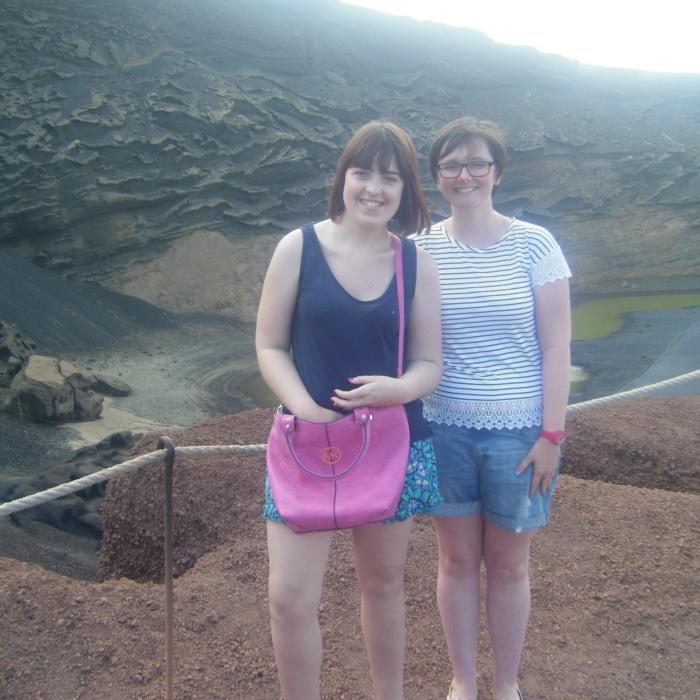
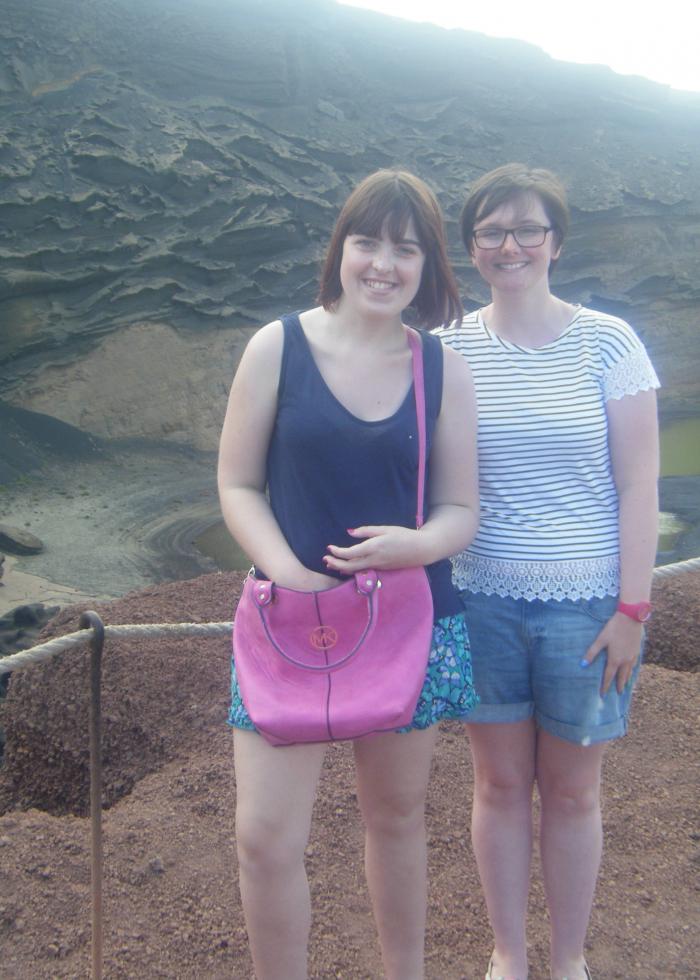
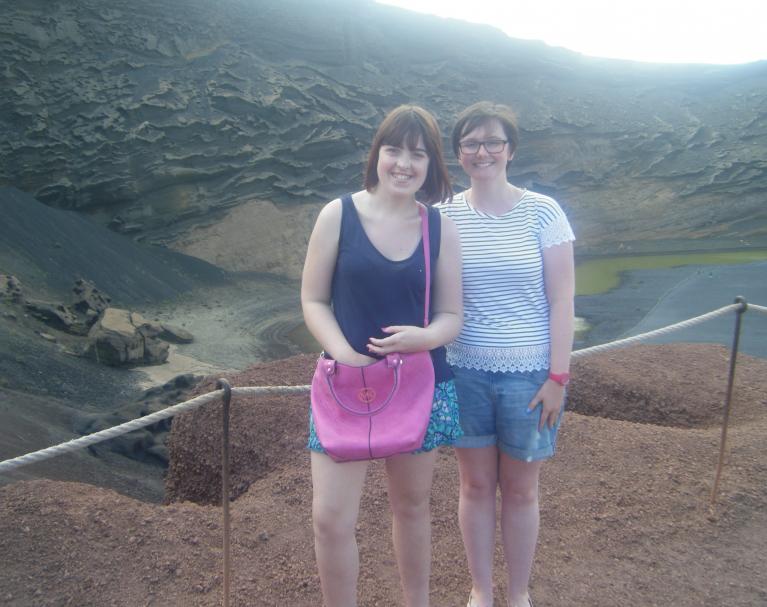
Outreach
Outreach support can be provided to access social and leisure activities or liaise with other agencies in relation to training, employment and social welfare support.
Support Abroad
Karyn, who we support on an outreach basis in our Lothian service, went on holiday to Lanzarote in the summer of 2015 with her support staff. Karyn brainstormed ideas and planned activities in advance and in the weeks before her holiday she became more and more excited, using her support time to go on shopping trips to buy new holiday clothes and prepare. Karyn had previously been to Lanzarote with her family and was eager to show staff her favourite restaurants and places.
Karyn and her support staff stayed in a self-catering apartment. The accommodation was lovely and in a great location, and also meant that Karyn was able to choose her own meals and practice cooking during the trip. Karyn made sure there was bread and her favourite mayonnaise in the apartment so she could have breakfast on the balcony every morning. She went to the tourist information office and picked up leaflets on the activities she wanted to try. They were new activities everyday, including swimming with sea lions, a submarine trip and an island tour. She also enjoyed spending time relaxing by the pool and appreciating the sunshine.
As well as being a fun holiday, the trip gave Karyn a confidence boost and she is looking forward to organising more in the future.
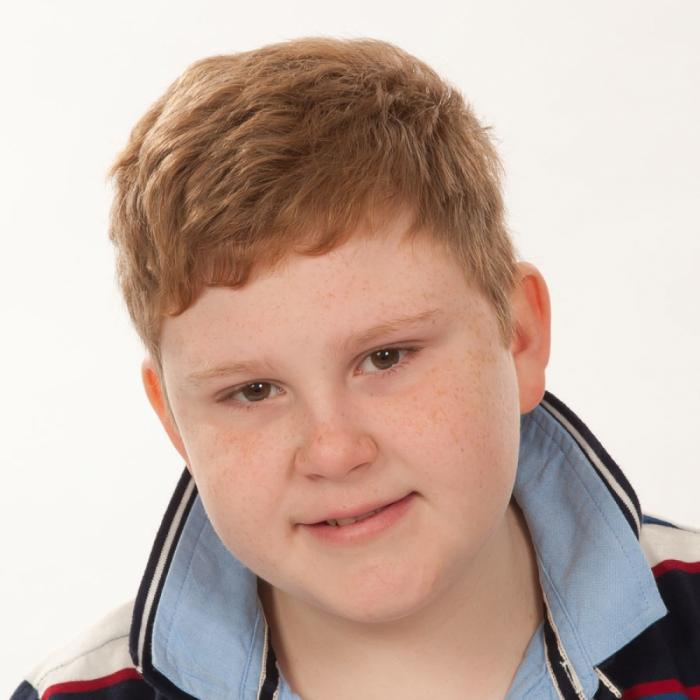
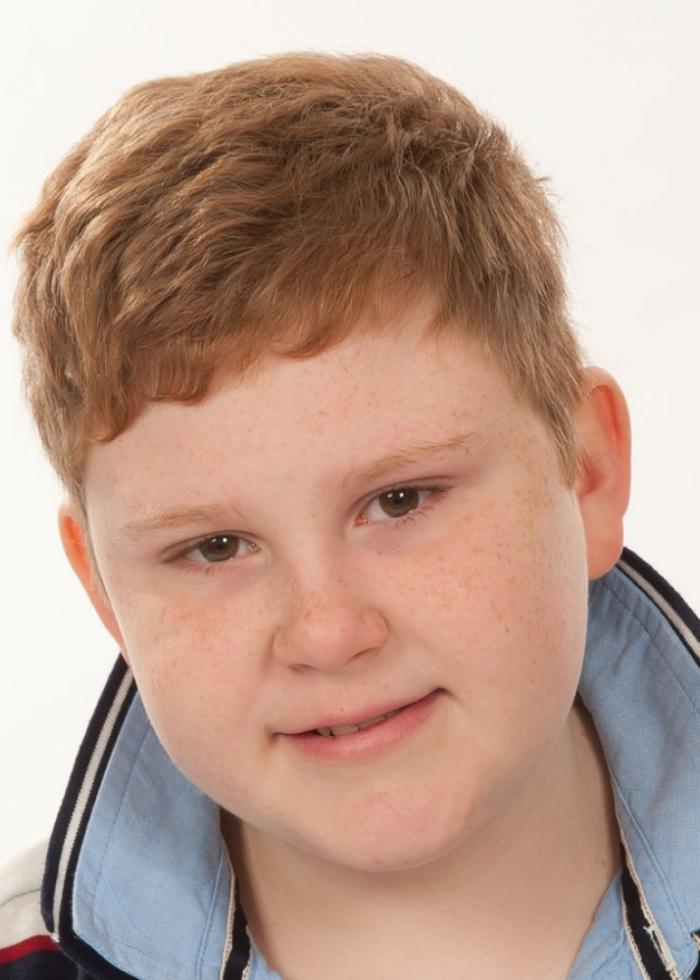
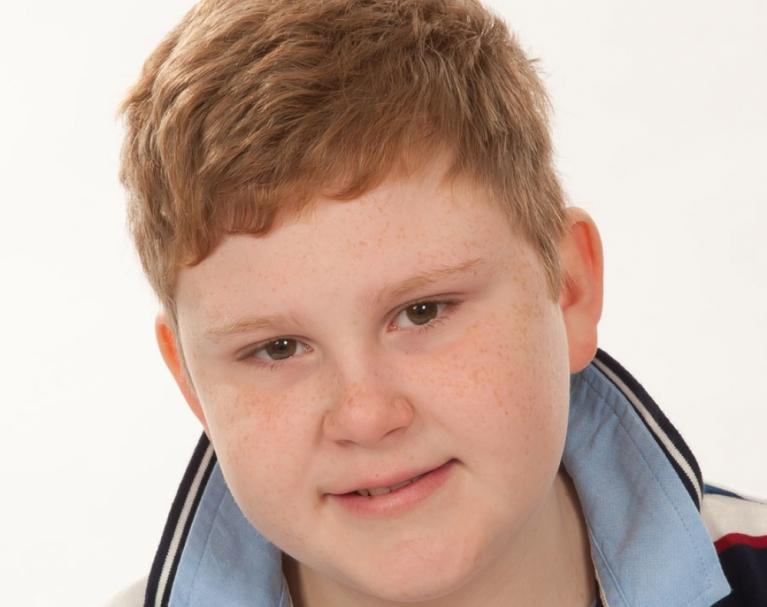
Education
New Struan School is a Day and Residential School for young people with autism. We are here to provide the best possible education and continue to lead the way in our approach and understanding of how young people with autism learn and develop.
Adam - written by his dad Greame
“Adam started at New Struan School in August 2014 having attended a learning support unit at a primary school in Stirling.
Having visited and considered various schools for Adam’s secondary education, we opted for New Struan School. This was taking into account the day-to-day curriculum and also the residential aspect. Our long-term goal for Adam is that by the age of 18 he is living in supported accommodation with opportunities to maximise his potential.
Adam has settled well into school life at New Struan – more so in his second year during which time he has developed hugely in aspects of language and social skills. We are quite fortunate in that Adam is fairly flexible in his day-to-day living with not too much emphasis being placed on new experiences and situations, therefore, the variety of activities centred around his curriculum is well suited to his capabilities.
He has always enjoyed outdoor excursions so trips to local venues or further afield to say the Science Centre in Glasgow or Auchengarroch Wildlife Centre near Crieff are hugely beneficial, as not only do they provide huge enjoyment but also can be used as motivational tools to promote these skills.
The grounds of New Struan provide a superb area where our children can (if need be) simply get outside and burn off excess energy/ frustration. In Adam’s case, if he shows signs of stress, often an opportunity to just run seems to provide a form of relief from whatever may be troubling him – so important in a life where people are always guiding or restricting your movements through fear of danger/harm.
Adam is a child who very much wears his heart on his sleeve. If he wasn’t happy at New Struan, this would be very obvious to us. Music has always played a big part in Adam’s life, with the music therapy sessions offered at the school proving extremely popular with him. The fact that he sings quite a lot is testament to his enjoyment of the school – even if the other staff and pupils have trouble appreciating his musical prowess.”
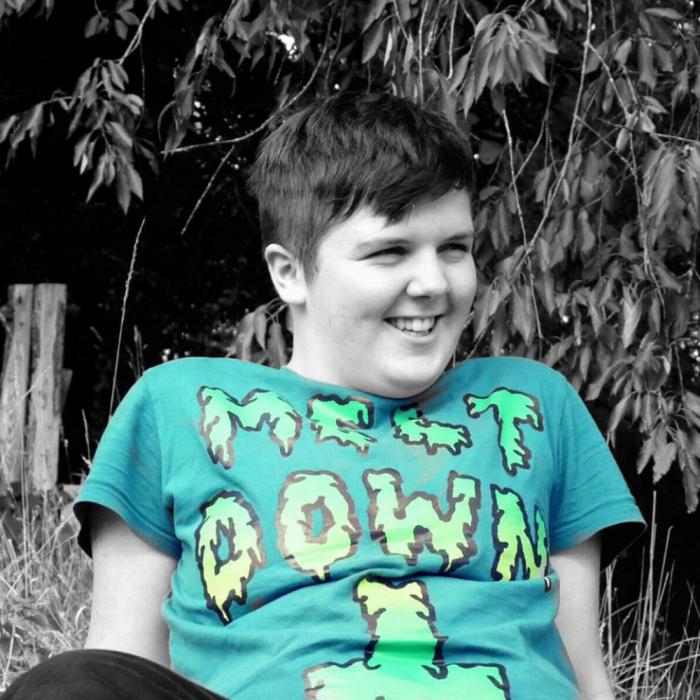
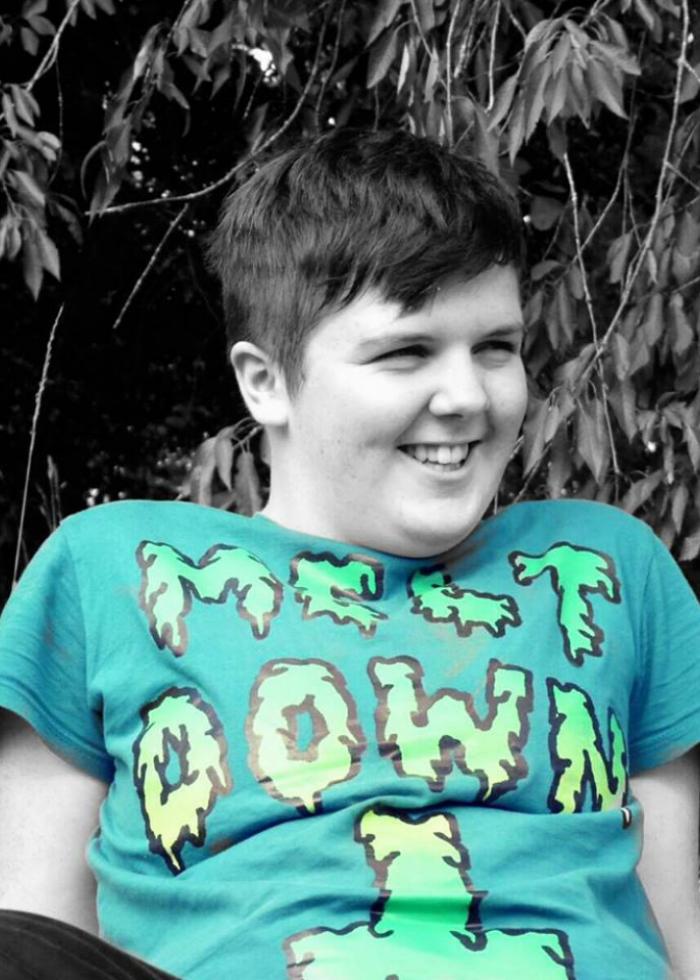
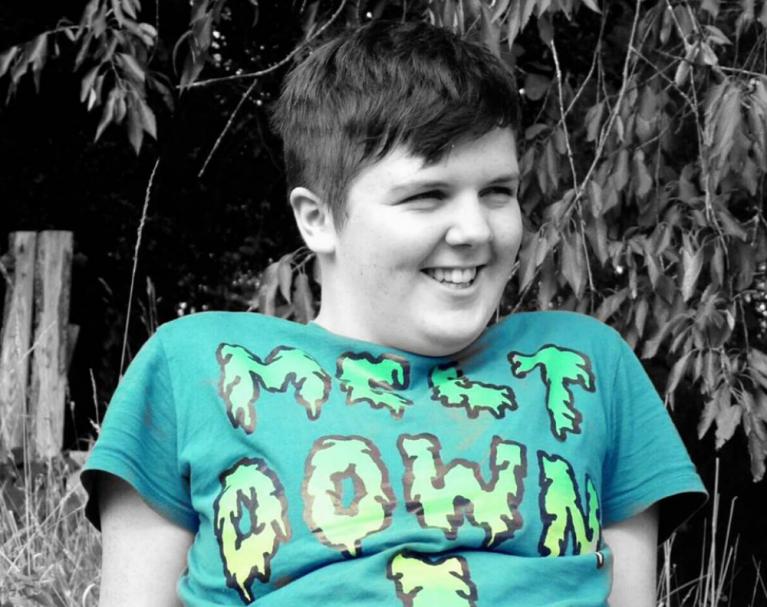
Respite and Short Breaks
Our Respite and Short Breaks Service at Clannalba offers a safe and homely environment where children and young adults can come to learn and have fun, providing a positive experience for both the individual and their family.
Teag’s College Experience
Teag has been accessing Clannalba for several years. At the start of 2015 he decided to go to college to study some Highers. Along with his support team, Teag carried out a recce of the college so that he could familiarise himself with the building. He also attended an induction class with other students to get a feel for what classes would be like. Teag and his key worker developed a social story before starting college. This was added to and adapted as he became more familiar and comfortable in the college and as new challenges/opportunities within the setting arose.
New College Lanarkshire was very helpful in working with Clannalba to develop a care plan. This ensured a smooth transition for Teag and that appropriate support was in place. They tailored some aspects of his classes and made sure teaching staff were aware of Teag’s communication challenges, allowing him to email tutors instead of face to face contact which Teag found much easier. The college was also accommodating, allowing him to have a practitioner with him in class.
To support Teag during his time at college, practitioners at Clannalba made sure that there was consistency in who was supporting him in classes. They also worked with Teag to help him develop his own communication system. This meant that his support worker did not need to regularly ask Teag how he was during classes as he was able to show a card to signal that he was fine.
Attending college has given Teag a huge boost in his confidence. As he became more comfortable in the college setting he has been able to participate in group discussions especially in English which he loves.
Speaking about his college experience, Teag said:
“In January 2015, I enrolled at New College Lanarkshire to experience mainstream schooling. I decided to start night school as I wasn’t ready for a day class due to the crowds and noise levels.
After that course, I had gained enough experience to face day classes. I started my Highers in August last year, and have just started my second semester. Since starting, I have learned how to work in a group setting, and I feel more confident. I recently had a maths NAB and I received full marks. However, this wasn’t always the case. I found adjusting into the routine of college a challenge (especially getting up early). Without my support staff members’ ongoing support I wouldn’t have been able to achieve the grades I am getting but everyday I am growing in confidence and now I am enjoying my college experience.”
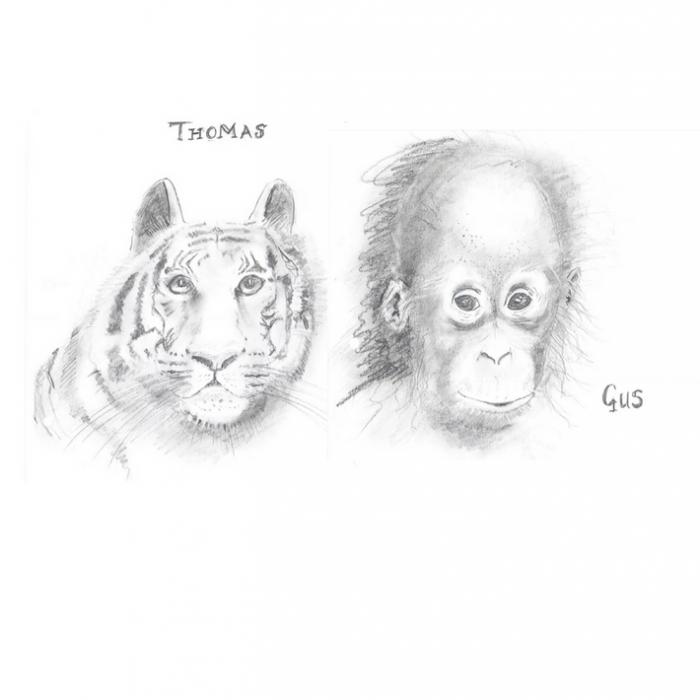
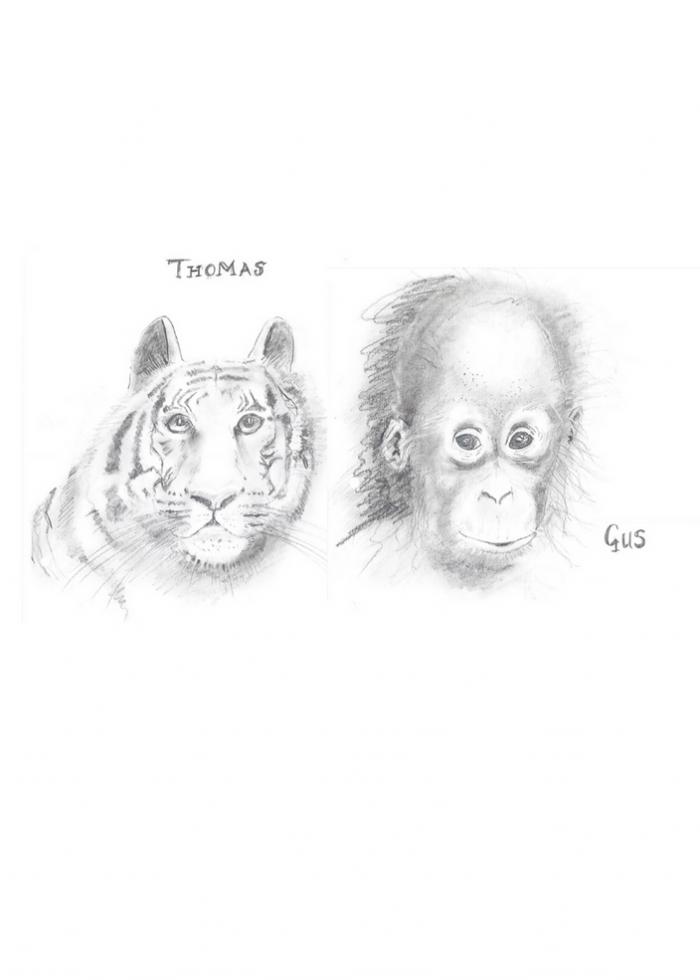
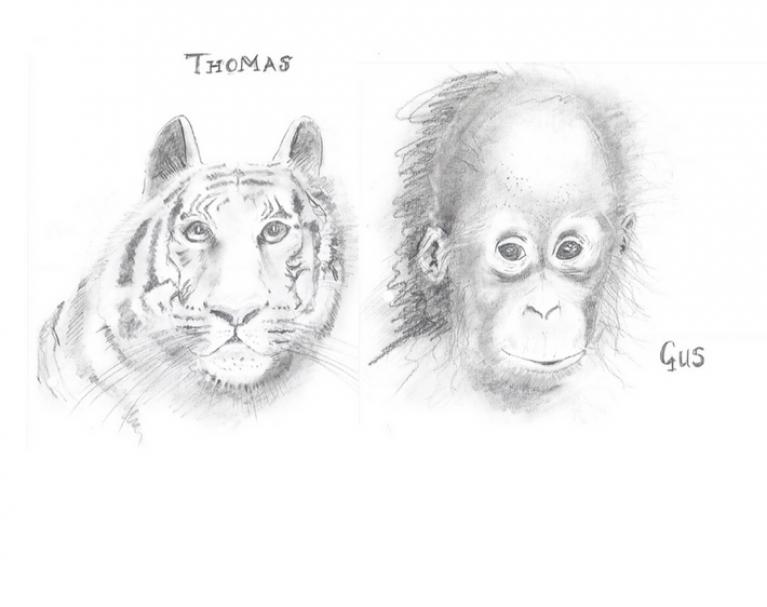
Transition
Scottish Autism provides an intensive and effective model for transition based at two of our residential services: New Ridgepark in Lanark and Clannalba near Biggar. It is here that we can offer individuals a sustained period of assessment and support in order to build a greater understanding of their autism and its impact on their life and, crucially, their future support needs.
The Value of Art
Graham accesses our Transitional Assessment Service at New Ridgepark and has been developing his drawing skills over the last year with the support of practitioner Jim.
Last year Jim discovered that Graham shared two of his interests; drawing and wildlife. When given a crayon and paper, Graham would scribble away, getting lost in the moment, creating art that meant something to him but he had difficulty explaining it to others. As he finds drawing self-soothing, he also found it challenging to stop. Jim started to support Graham with his art giving him more direction.
Graham now chooses the subject matter from a wildlife book and Jim creates a line drawing. Together they put in the background shading and the different depths of shadow. A time limit is set which helps Graham to keep focused on the task. Supporting him in this way has had significant benefits enabling him to socialise more with others with his art operating as a talking point. Drawing is also great for reducing his stress levels and now, even when he is drawing alone, he is much more focused and his art is more easily distinguishable.
When the artwork is complete, Graham names each picture and they are put on display. Graham genuinely enjoys this activity and when his work is on display his pride is evident. As result there has been a noticeable increase in his self-esteem.
Speaking about supporting Graham, Jim said: “Working with Graham brings all sorts of fun and challenges on a daily basis. Graham finds both watching and participating in drawing wildlife utterly calming and fulfilling. He takes pride in showing off his work to anyone and everyone but has genuine enjoyment and complete concentration in the process of producing the end product.”
Fundraising
We would like to say a big thank you to all our supporters who get involved and raise funds for Scottish Autism. Generous donations and fundraising activities help us to reach and support more individuals and families living with autism in Scotland.
Donations fund our charitable activities, including our Advice Line which receives over 1,400 calls per year, Right Click, our online support programme, which has supported over 400 families in 2015/2016, and our Access Film Club for young adults with autism, in partnership with the Glasgow Film Theatre.
Fundraising also helps us to provide additional services for the individuals we support such as art therapy, communication aids, outdoor gyms, sensory rooms and social groups.
New Struan School Playground Appeal
The £145,437 target to fund the new playground at New Struan School was exceeded. The pupils are now enjoying using the new equipment, including a climbing frame, outdoor musical instruments and a swing seat. The new playground has enabled more outdoor learning across the curriculum and helps to reduce pupil anxiety.
“I really like the exercise equipment as I can watch the trains go by.” New Struan School pupil
Corporate Giving
Funding of £135,000 from Lyreco will sustain and develop our Right Click programme over the next three years, and allow us to continue providing valuable online support to families when they need it most.
£5,000 funding from the Clydesdale Bank’s Spirit of the Community Award will help us to make banks more accessible for people with autism. We will develop short videos with advice on topics such as how to keep money safe and guard against fraud as well as how an individual can transact online or over the telephone with their bank.
Edinburgh Airport donated £6,814 from staff fundraising activities throughout the year.
Individual Efforts
Alison Hood took part in the Burma Cycle Challenge raising £3,684. Alison is a long-standing supporter of Scottish Autism and has raised over £50,000 since she started fundraising in 2003.
Ken Hanley took part in the London to Paris cycle at the age of 70, raising £5,728. Ken’s granddaughter has autism and he wanted to support a charity which helped people with autism in Scotland.
Community Donations
The Ladies Section at Cathcart Castle Golf Club raised £3,875 from various fundraising activities.
The Salvation Army choir based at Ayr Community Church selected Scottish Autism as their charity for their Christmas concert and raised over £2,800.
Merinda and Monica Dillon hosted a charity lunch raising £2,288 for our day service in Hamilton, where Merinda’s son Daniel is supported.
Legacies
We are very grateful for donations from gifts in wills to support and develop our services for individuals and families living with autism.
Volunteers
Thank you to all the volunteers across Scotland who get involved and raise money for Scottish Autism.
Staff from Dell helped to improve the sensory garden at our New Ridgepark Transition Service.
Big Lottery (Get Set 4 Autism)
We are now in the second year of five year funding from the Big Lottery for the Get Set 4 Autism project. In partnership with Autism Argyll the project aims to provide post-diagnostic support to parents and carers of children and young people up to the age of 18 years old who have autism across Argyll and Bute.
Resource
In 2015/16 income grew by 9.2%, with fees from core charitable activities – which make up 94% of total income – increasing by 8.2% from £21.9m to £23.7m. Fee growth mainly came from Autism Services, although extended provision placements also contributed to a growth in fee income at New Struan School. Grant-funded income increased this year, largely due to a change in accounting treatment to recognise more income in the year of the award rather than over any award period. Expenditure in future years will reflect the costs associated with delivery of obligations under these grants. Fundraising income increased by 23.4% from £332k to £410k, with costs falling by 11.9% to £203k.
Resources expended on charitable activities increased by 11% to £25.8m from £23.2m, and overall expenditure grew at a greater rate than income. There was a modest underlying operational surplus in 2015/16; however, for the first time in 10 years, expenditure exceeded income, as shown in the graph. The trend has been for reducing operating margins, with the double impact of the freeze on local authority funding, and cost increases through changes in employment legislation. These pressures are set to increase significantly in the foreseeable future. Their impact was compounded in 2015/16 by the requirement to account differently for defined benefit pension scheme charges, which led to the overall deficit. The balance sheet position remains strong, with net current assets of £7.9m (2015: £7.2m) and total funds of £7.9m (2015: £1.7m), the improvement arising from a significant reduction in the value of the pension scheme deficit at 31 March 2016.
Staff Growth
Looking Forward
As we look to the coming year, we will stay focused on embedding a positive model of practice centred around wellbeing, happiness and a good quality of life for the individuals we support.
We will also seek new opportunities to work with organisations at home and internationally, allowing us to spread our knowledge further and learn from others. Furthermore we look forward to extending our offering to individuals, parents and professionals through the development of our online support programme for women and girls.
This review highlights just some of the success stories from across our services. As our knowledge of autism continues to develop, so too does our practice. Going forth we will carry on reviewing and improving the quality of our practice, supporting individuals in new and creative ways.
We recognise that we need to be more efficient, agile and resilient than ever before in order to continue with our evolution and look forward to reporting on the impact the ‘Fit for the Journey’ programme has on our organisational efficiency in next year's review.
Board Members
Senior Management Team
Head Office
Hilton House
Alloa Business Park
Whins Road
Alloa FK10 3SA
Tel: 01259 720044
Email: autism@scottishautism.org

